Guide on EU funding for tourism
This online guide highlights the wide range of funding programmes financed by the new budget, multiannual financial framework 2021-2027, and Next Generation EU.

Guide on EU funding for tourism

This online guide highlights the wide range of funding programmes financed by the new budget, multiannual financial framework 2021-2027, and Next Generation EU. With these resources and this guide, we're supporting the move towards a more digital, sustainable and inclusive EU.
The guide will help you find appropriate funding. It contains links to relevant EU programme websites with the latest developments (such as annual work programmes or calls for proposals) and further details per programme.
For inspiration, you can also see concrete project examples funded by previous EU programmes. The guide is available in all EU languages via a high-quality machine translation tool.
How do I use this guide?
This guide focuses on practical issues related to the most important EU funding programmes for the tourism sector. Find out about your eligibility, which activities are eligible, the different types of funding, and where to apply & when. For brevity's sake, the guide only covers what is essential to find the relevant programme.
Step 1: Identify the relevant programmes and financial instruments
Find the most relevant programmes through the online guide’s three questions.
- On eligibility: Who can apply?
- On the programme’s topic: Which actions can receive funding?
- On the type of support: What kind of funding is available?
Disclaimer : For some programmes the annual work programme 2022 has not yet been adopted. Therefore, the information in this guide may be subject to future changes.
Step 2: Get familiar with the call-specific forms documentation (online)
Download the information package, usually including a 'guide' with advice on preparation and submission. If the information is not clear to you, feel free to use the dedicated interface (e.g. functional mailbox, online page, etc.).
Step 3: Find partners where useful or required
Some (sub)programmes support cross-border or trans-European projects. You may then need partners based in other EU countries to form a consortium. Many programme websites or pages advertising a specific call contain a section where potential partners can post their offer or request.
Step 4: Submit your proposal, offer or application on time
Additional information.
- Before you apply: EU funding for beginners | European Commission (europa.eu)
- General information on funding and tenders opportunities | European Commission (europa.eu)
- Find call for proposals & tenders (europa.eu)
- Find your EU funding programme for the environment
- Discover funding opportunities for the cultural and creative sectors
In 2020, the EU introduced a stimulus package worth €2.018 trillion (in current prices). It consists of the EU’s long-term budget for 2021 to 2027 under the multiannual financial framework and NextGenerationEU, a temporary instrument to power the recovery. These resources will be allocated toward the green deal, digitalisation, and unforeseen circumstances.
Actors in the tourism ecosystem may also be eligible.
See the EU’s 2021-2027 long-term budget & NextGenerationEU .
Need technical assistance for project preparation or to find funding partners?
Local business support.
- Enterprise Europe Network (EEN) offers SMEs free advice on funding opportunities through a network of local contact points .
- It also offers the possibility to find partners and create international partnerships.
- The European Cluster Collaboration Platform supports finding business partners within the tourism industrial ecosystem.
- Professional organisations may also provide similar support.
Technical assistance for applicants
- European Investment Advisory Hub - EIAH , a contact point for advisory expertise to help projects get funding
- Joint Assistance to Support Projects in European Regions - JASPERS by the European Commission and by the European Investment Bank provides free assistance to local authorities and promoters, especially on project preparation, independent quality reviews and capacity building.
- Climate Adaption Investment Advisory Platform (ADAPT) offers advisory services for project promoters to accelerate the financing of climate adaptation investments that have the potential to strengthen e.g. coastal areas, food systems and other activities vulnerable to climate change.
- GREEN ASSIST – Green Advisory Service for Sustainable Investments Support offers free of charge services to project promoters or financial institutions targeting sectors of the natural capital and circular economy, but also non-environmental sectors.
More useful links
- Search on Access to finance - Your Europe (europa.eu) for financial opportunities in your country filtered by loans and EU-supported venture capital.
- The European Small Business Portal signposts relevant information for SMEs.
Open tourism calls
Tourism-related calls in funding and tenders from the Single Electronic Data Interchange Area .
Selected calls for SME support under the Single Market Programme
- SMEs TRAnsition for an European Circular tourism Ecosystem : TRACE 2nd open Call for SMEs support in Belgium and Spain (SMP-COSME-2021-TOURSME-01) – Financial support programme, deadline 30 April 2024 (17:00)
- Re-Opening for Germany : European Tourism Sustainability Monitoring 2030 (ETSM2030) (SMP-COSME-2021-TOURSME-01) – Financial support and services, deadline 8 May 2024 (17:00)
- IKAT Tourism 2º Call for SMEs in Europe – Financial support for services (IKAT) deadline 15 May 2024 (17:00)
- International travel FSTP - REsilience through Sustainable processes and production for the European automotive InduSTry for SMEs working in the Mobility, Transport and Automotive ecosystem to participate in internationalisation acceleration activities organised in non-EU third countries (SMP-COSME-2021-CLUSTER-01 - Euroclusters for Europe's recovery) – different cut-off dates, Deadline 20 December 2024 (12:00)
Selection of future and currently open funding & tenders
- Pilot Action: Building Capacity for Tourism , Call for tenders (EISMEA/2023/OP/0024) deadline prolonged until 29 May 2024.
- Technical assistance and support services required for the organisation of the next editions of the European Youth Event, as well as travel and accommodation for participants to various youth events in Europe, Call for tenders in 2 lots, (EP-COMM/2024/OP/0002) deadline 03 June 2024 (17:00)
- Town Twinning , Call for proposals, lump sum grants (CERV-2024-CITIZENS-TOWN-TT) deadline 19 September 2024 (17:00)
- Advanced user-friendly, compatible, secure identity and travel document management (HORIZON Innovation Actions, HORIZON-CL3-2024-BM-01-02), planned opening date 27 June 2024, deadline 20 November 2024 (17:00)
Examples of calls for skills development (mostly under Erasmus+)
- Several funding opportunities for Erasmus+ focusing on higher education and youth. Calls support students and staff mobility with the chance to undertake a learning/professional experience in another country – different deadlines, e.g. 7 May 2024 (12:00) and 1 October deadline 2024 (12:00)
- EURES Targeted Mobility Scheme (TMS), Call for proposals (ESF-2024-EURES-TMS) deadline 4 June 2024 (17:00)
- More funding opportunities for industrial ecosystems under the Pact for Skills
Selected calls focussing on innovation and/or sustainability (not tourism-specific)
- Call for expression of interest for new partnerships with other regions linked to their smart specialisation strategy in 4 thematic areas (including sustainable blue economy ). Applications continually open, two cut-off dates for applications each year, previous one was on 29 March 2024
- Resilient, inclusive, healthy and green rural, coastal and urban communities , different Calls (HORIZON-CL6-2024-COMMUNITIES-02-2), two-stage deadline model 22 February 2024 (17:00) and 17 September 2024 (17:00)
- Demonstrating the potential of Nature-based Solutions and the New European Bauhaus , (HORIZON-CL6-2024-BIODIV-02), two-stage deadline model 22 February 2024 (17:00) and 17 September 2024 (17:00)
- Community-led actions to restore our ocean, seas and waters , Call for proposals (HORIZON-MISS-2024-OCEAN-02-01) deadline 18 September 2024 (17:00)
Last updated: 24 April 2024
Guide on EU funding for tourism (17)
Creative Europe is the European Union's programme for support to the cultural and creative sectors, including the audiovisual sector.
The Digital Europe work programme, which runs from 2021 to 2022, shapes and supports the digital transformation of Europe’s society and economy. Its ultimate goal is to support the strategic autonomy of the EU single market.
Erasmus+ is the EU programme in the fields of education, training, youth and sport. These are key areas that support citizens in their personal and professional development.
The Common Agricultural Policy (CAP) under the European Agricultural Fund for Rural Development (EAFRD or so-called Second Pillar) supports the vibrancy and economic viability of rural communities through rural development measures.
The European Globalisation Adjustment Fund (EGF), launched in 2007, helps people find new jobs through further education or training or helps them start their own business.
The fund supports actions and investments that contribute to the protection of aquatic biodiversity and to sustainable and low-impact fishing and aquaculture activities. It also promotes the supply of quality and healthy seafood products to European consumers.
In order to strengthen the environmental, socioeconomic sustainability and resilience of tourism in the long term, regions and countries are encouraged to help transform the sector by learning from innovative solutions.
The ESF+ has a total budget of over €99 billion. It invests in people, creating and protecting job opportunities, promoting social inclusion, fighting poverty and developing the skills needed for the digital and green transition.
Research and innovation framework programme, running from 2021-27. It has a budget of around €95.5 billion for 2021-27 (in current prices), including €5.4 billion from NextGenEU to boost the economic recovery and make the EU more resilient for the future, and €4 billion reinforcement.
The InvestEU programme will promote investments to strengthen tourism’s competitiveness, sustainability, and value chains. It will facilitate sustainable, innovative and digital measures, which could help reduce the sector’s climate and environmental footprint.
The Fund aims to reduce the social and economic costs resulting from the transition to an EU climate-neutral economy by supporting diversification of economic activity, creating new business opportunities and helping people adapt to a changing labour market.
Funds projects in environment and climate action. Tourism activities related to green transition can benefit from the programme. Particularly tourism projects supporting the circular economy, energy efficiency and renewable energy measures, as well as climate-neutrality may be eligible.
As a part of the NextGenerationEU, REACT-EU provides additional €50.6 billion (in current prices) for assistance aimed at fostering development in the context of the COVID-19 pandemic and its social consequences, as well as preparing a green, digital and resilient recovery of the economy.
The Recovery and Resilience Facility (RRF) is the centrepiece of Europe’s recovery plan, NextGenerationEU. It finances reforms and investments in EU countries from the start of the pandemic in February 2020 until 31 December 2026.
Aims to provide EU countries the tools to recover and repair from the Covid-19 crisis. The final objective is to make the Single Market stronger and more resilient. Annex 2 focuses on improving the competitiveness of enterprises, particularly SMEs, and supporting their access to markets.
Projects financed by EBRD address a wide area of sustainable practices and associated market trends in tourism. Out of the EBRD’s 39 countries of operation, 12 are located within the EU. There are 3 programmes with specific relevance to the tourism sector.
The European Investment Bank is the lending arm of the European Union. The EIB offers loans, guarantees, equity investments and advisory services and operates both in the EU and around the world.
Share this page

We help small accommodation providers in rural areas. Get inspiration on how to adapt your services. Get more satisfied visitors.
2nd call for rural tourism smes, the list of selected smes is out, how to assist smes.
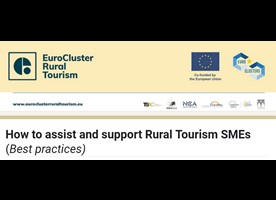
Financial support
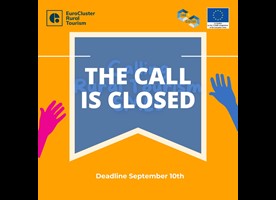
Tools and information

Productive meetings that make EU Rural Tourism grow
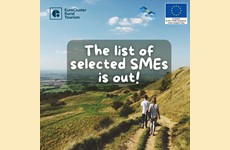
2nd Call for Rural Tourism SMEs: The list of selected SMEs is out!

The 2nd Call was closed and evaluated. The list of selected SMEs has been released.

The Second Call for Rural Tourism SMEs, closed on January 16th, 2024
90 applications received!

2ND CALL FOR SMES - LATESTS NEWS
We kindly remind you that the deadline for submitting applications is Tuesday, the 16th of January, at 17,00 CET (Brussels) time.
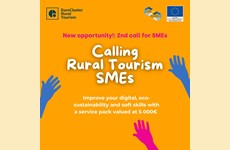
Second Call for Tourism SMEs: LATEST NEWS

New Opportunity! 2nd Call for SMEs is OPEN until 16th of January 2024, 17:00 Brussels time!
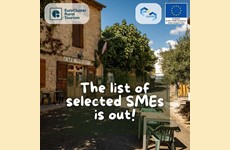
Call for Expression of Interest - Assistance Service Providers
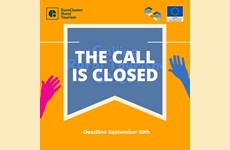
The Call for SMEs was closed on September 10th
214 applications received!
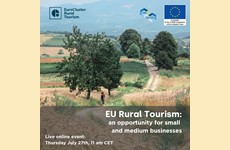
See all the information presented during our 1st transnational webinar - EU RURAL TOURISM: an opportunity for small and medium businesses
If you couldn’t attend the session: EU RURAL TOURISM: an opportunity for small and medium businesses - live event , here you can find all the information provided and the recording of the session.

EU RURAL TOURISM: an opportunity for small and medium businesses - live event
SAVE THE DATE! The first Transnational Webinar for rural tourism SMEs managed by The Eurocluster Rural Tourism Project is taking place next week!
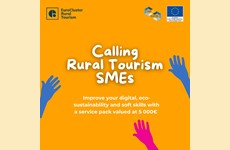
The Call for Tourism SMEs is OPEN NOW until 10th September 2023!
If you are a Micro or Nano SME and you want to improve your digital, eco-sustainability and soft skills, this call is for you!

Next Steps after closing the call for expression of interest by external Assistance Service Providers(ASP)
Next Steps

Announcement of a Call for Expression of Interest - Assistance Service Providers

Financial Support to SMEs
We are preparing a public call for financial support to help you in 12 specific action and support areas which helps you to improve in digital, green and soft/social competences. This support will be available in at least 15 European countries yet to be defined.
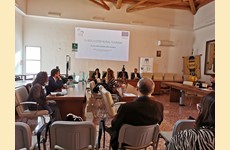
Press Release: Rural tourism: the new sustainable trend funded by the European project EU RURAL TOURISM
Public presentation of the project: "EU Rural Tourism". During the first meeting of the project partners in Venice (17-18 October 2022)

© 2023-2024 Eurocluster Rural Tourism. Všechna práva vyhrazena.
Assembly of European Regions
Connecting regions, inspiring europe since 1985, the new guide on eu funding for tourism is out.
29 November, 2021 By Anna Comacchio

Is Tourism , – be it cultural, rural, sustainable, or all of the above – on your region’s list of priorities? If the answer is yes, then this brief article may be the starting point for a great journey , destination EU projects funding opportunities!
The online guide recently published by DG Grow (Internal Market, Industry, Entrepreneurship and SMEs) highlights the wide range of funding programmes financed by the new budget (the Multiannual Financial Framework 2021-2027 and Next-Generation EU) which are directly or indirectly related to tourism and thus can be of interest and of inspiration to your region and organisation to develop a project to promote inclusive, smart and sustainable tourism in your region or city.
While some programmes (such as the European Regional Development Fund ) have tourism clearly stated in their main policy objectives, others have no specific tourism theme, but that doesn’t mean that tourism-oriented projects cannot benefit from the funding.
For instance, in the LIFE Programme (which is the EU’s funding instrument for the environment and climate action), projects that marry climate adaptation measures with tourism may in fact be eligible .
In general terms, funding for tourism can therefore be provided via different actions and programmes, which are open periodically through calls for proposals published on the websites of the relevant programmes.
In a nutshell, this guide helps you navigate through many of the programmes for 2021-2027 through the lenses of tourism . It is available in all EU languages so we highly recommend checking it out and getting in touch with us at AER if you have want to develop a project with us or with other regions in our network.
AER has recently concluded the CUBES Project , aiming at boosting participatory cultural administration skills. In this context, cultural heritage and sustainable tourism were identified as subjects of great interest by many of our members, hence the willingness to continue working on this topical issue.
So don’t hesitate and get in touch with us by writing to [email protected] !

Become a Member
Job Opportunities
Sign up for our Newsletter
Website map
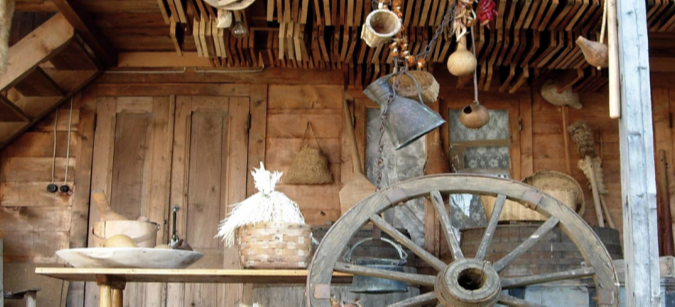
Visit Georgia
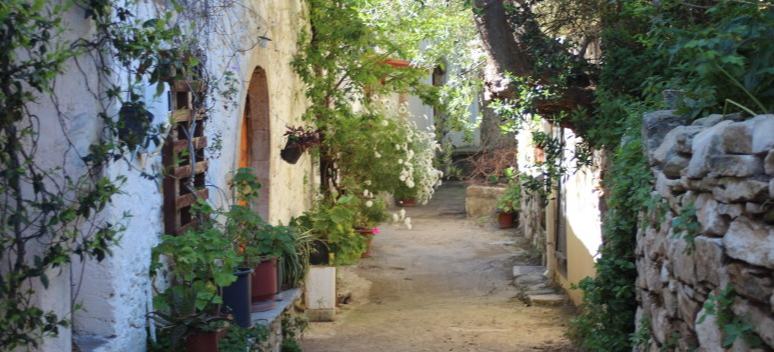
Visit Greece
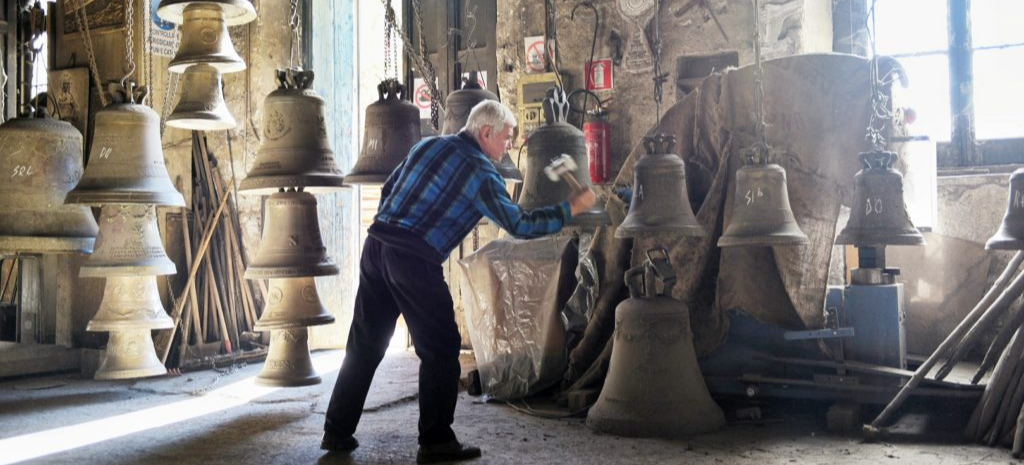
Visit Italy

Visit Norway
European federation of rural tourism.
The European Federation of Rural Tourism - RURALTOUR is a professional tourism trade organisation representing this sector at European level. It is formed by 28 national and regional provider organisations from 25 countries of geographical Europe, plus 4 affiliated members in 4 countries of Central Asia.
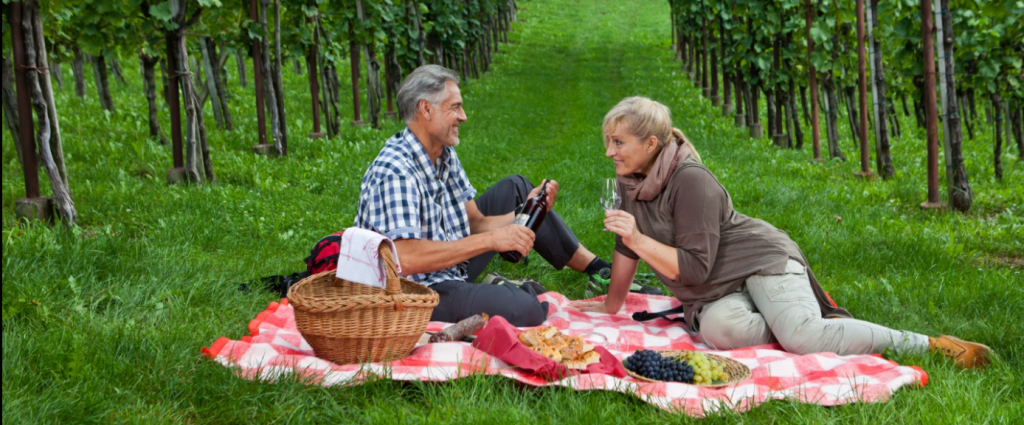
Special requirements
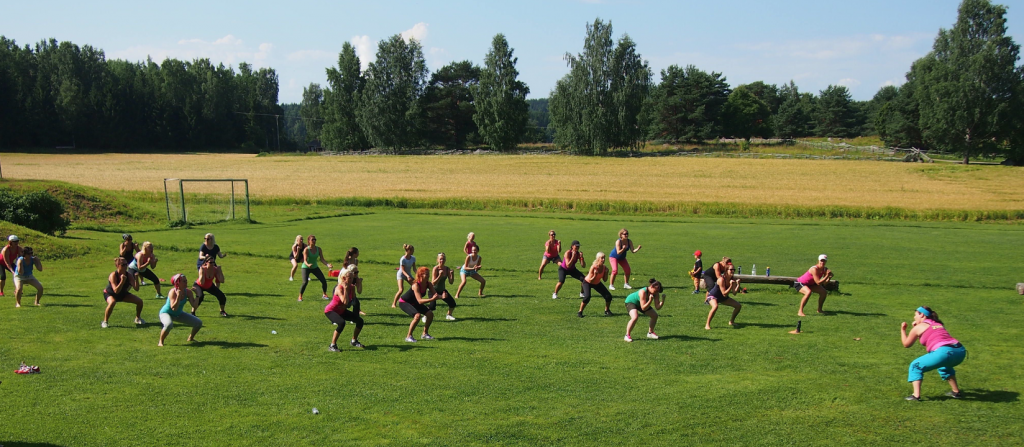
Unique experiences
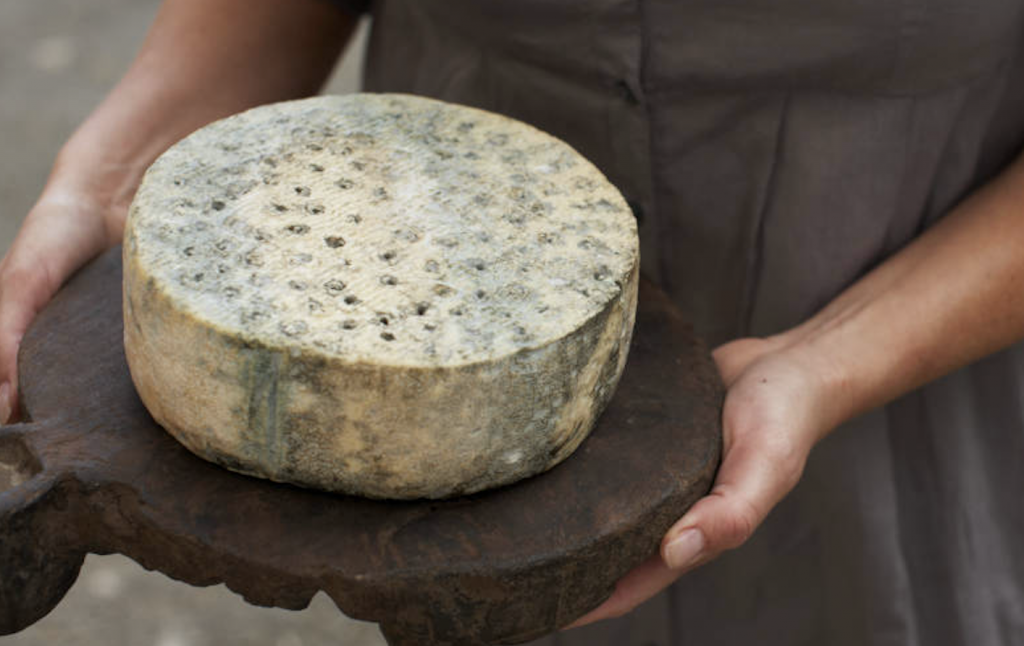
Live like a local
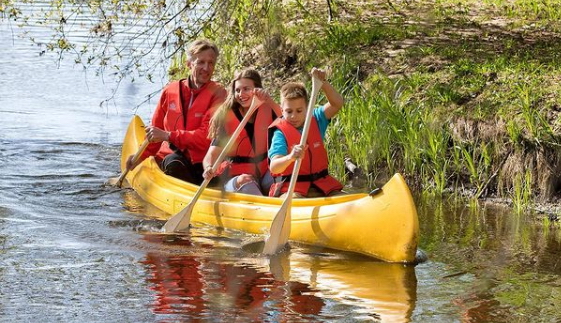
Culture, Heritage, UNESCO sites
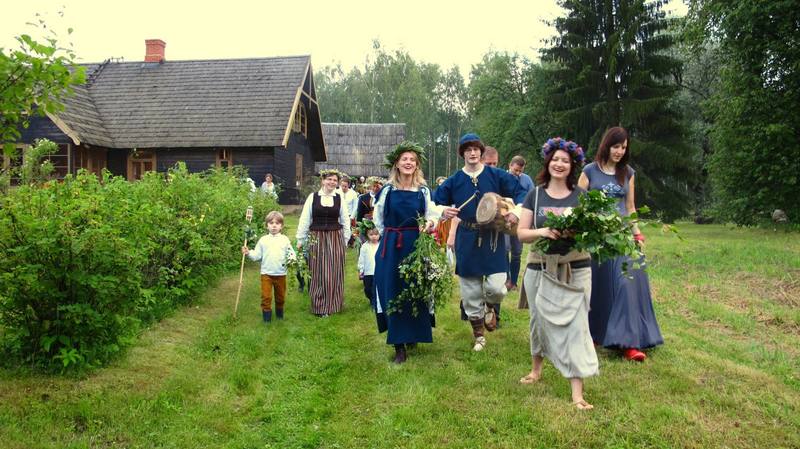
Gastronomy and Food
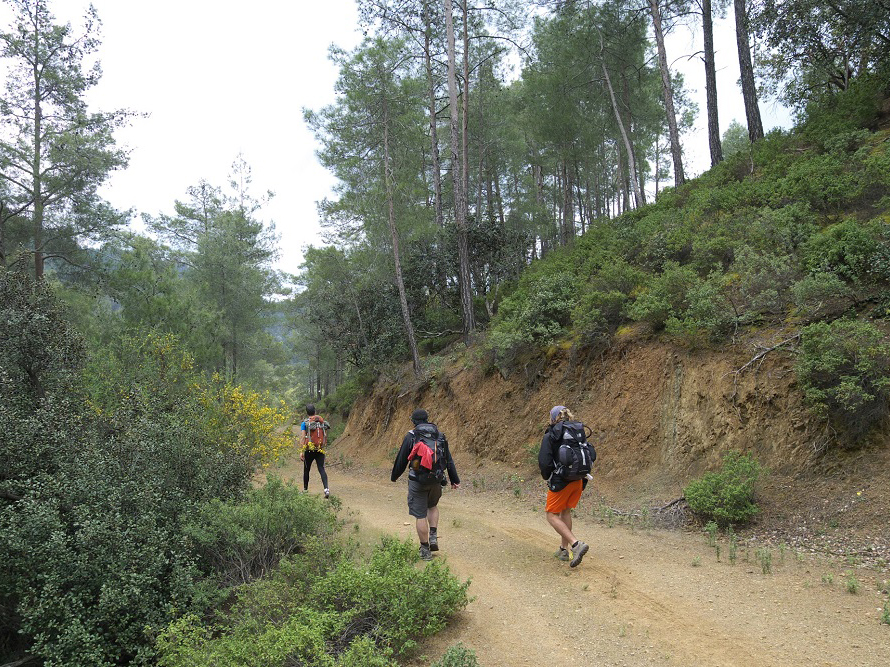
Hiking and walking
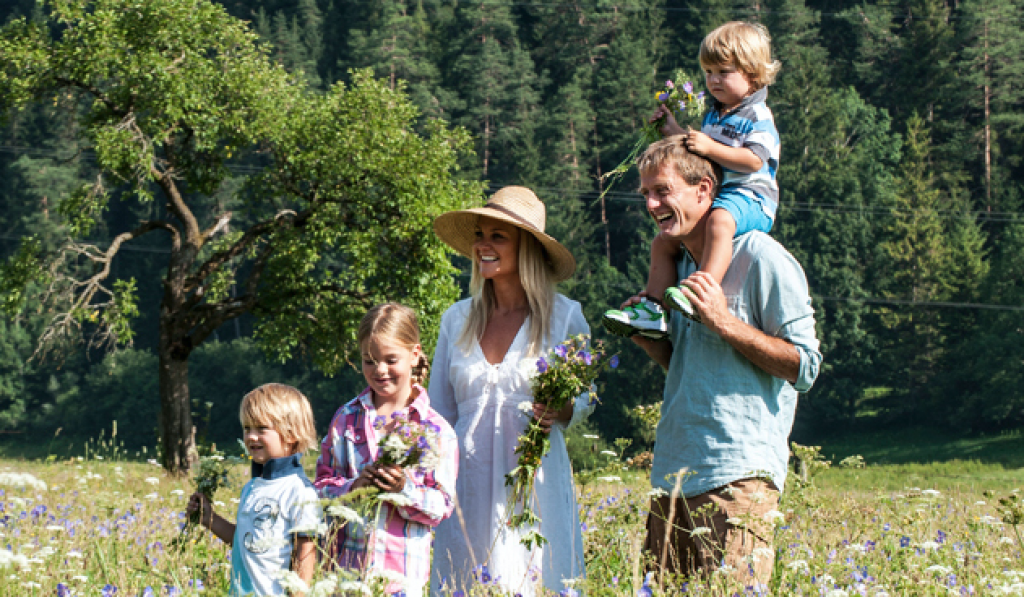
Family holidays
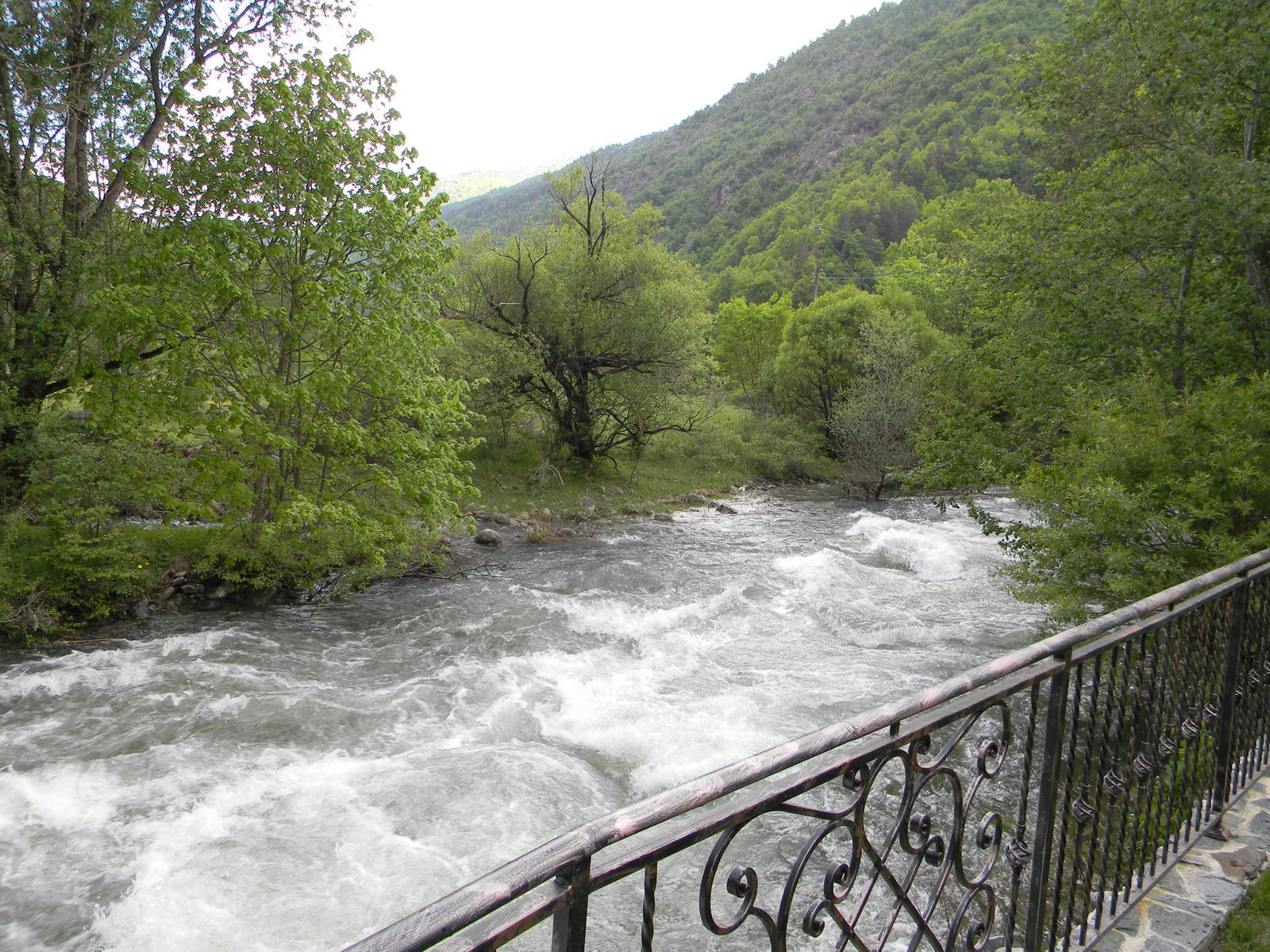
Nature Parks
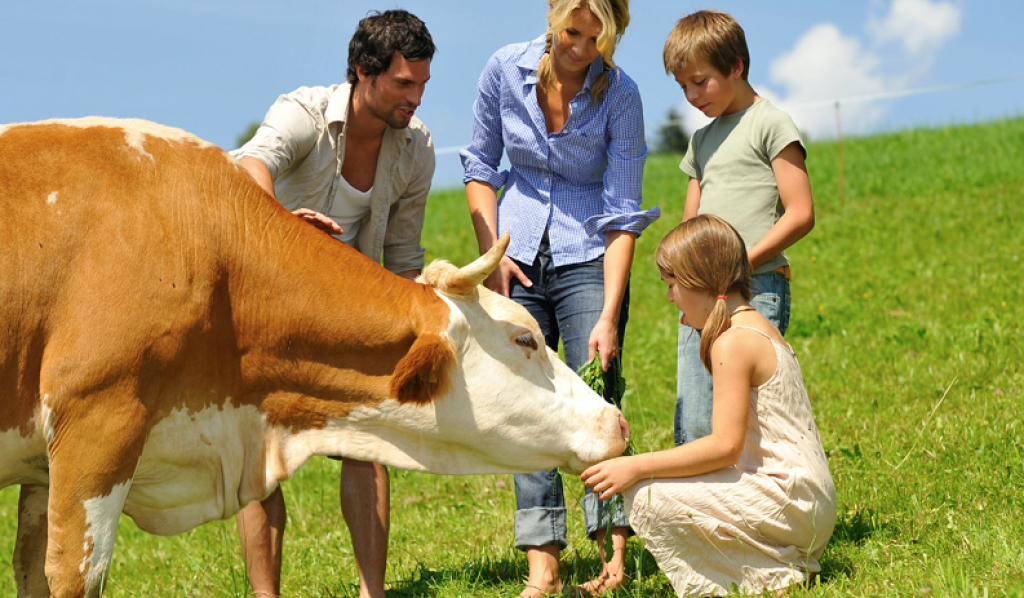
Farm Experience
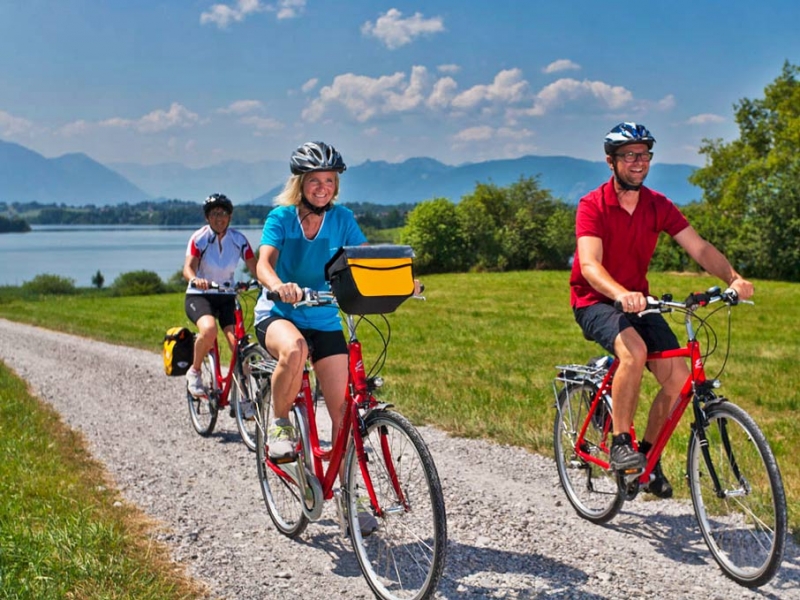
Travel and tourism industry unites to tackle climate change

Survey in Equality, Diversity and Inclusion Training in Hospitality and Tourism
PANTOUR Survey in Equality, Diversity and Inclusion Training in Hospitality and Tourism
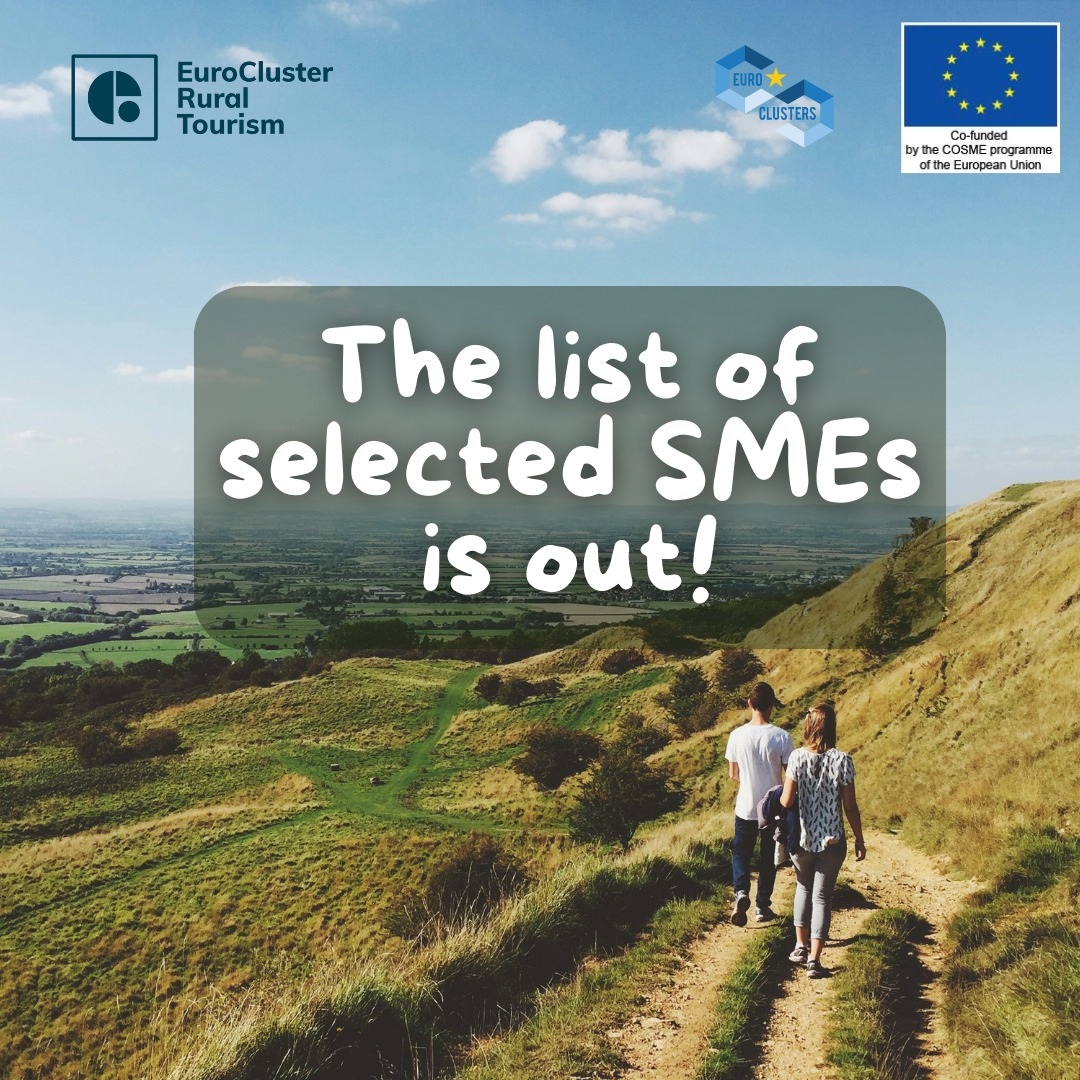
Final list of Selected 2nd call SME's is published RT Eurocluster
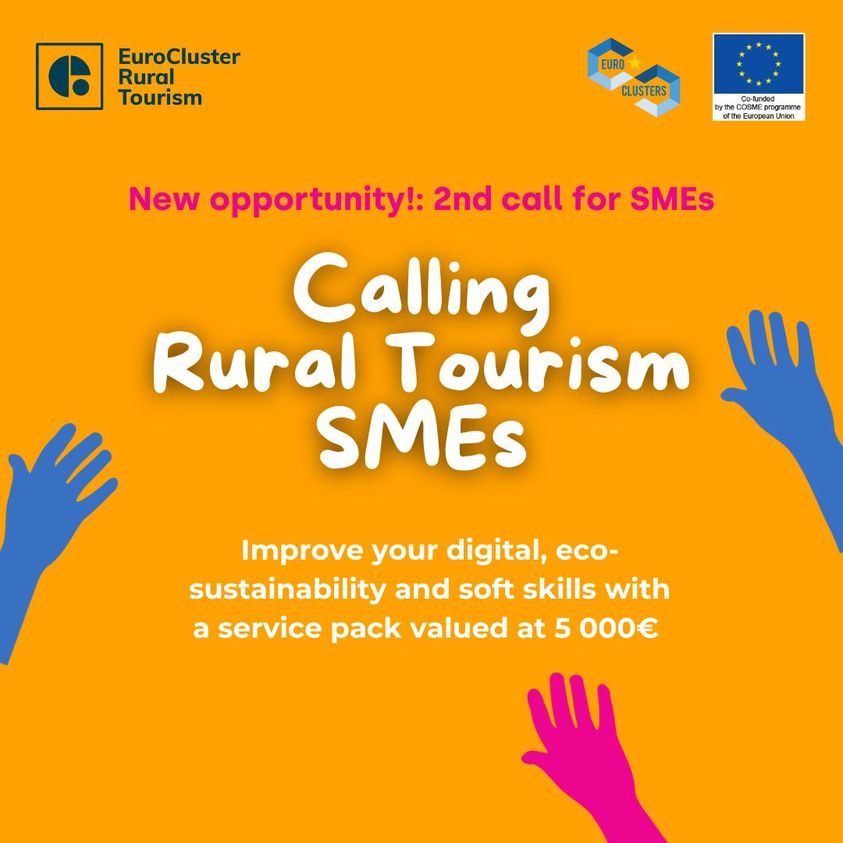
2nd Call for Tourism SMEs GRANTS OPEN NOW
2nd Call for Tourism SMEs GRANTS OPEN NOW!
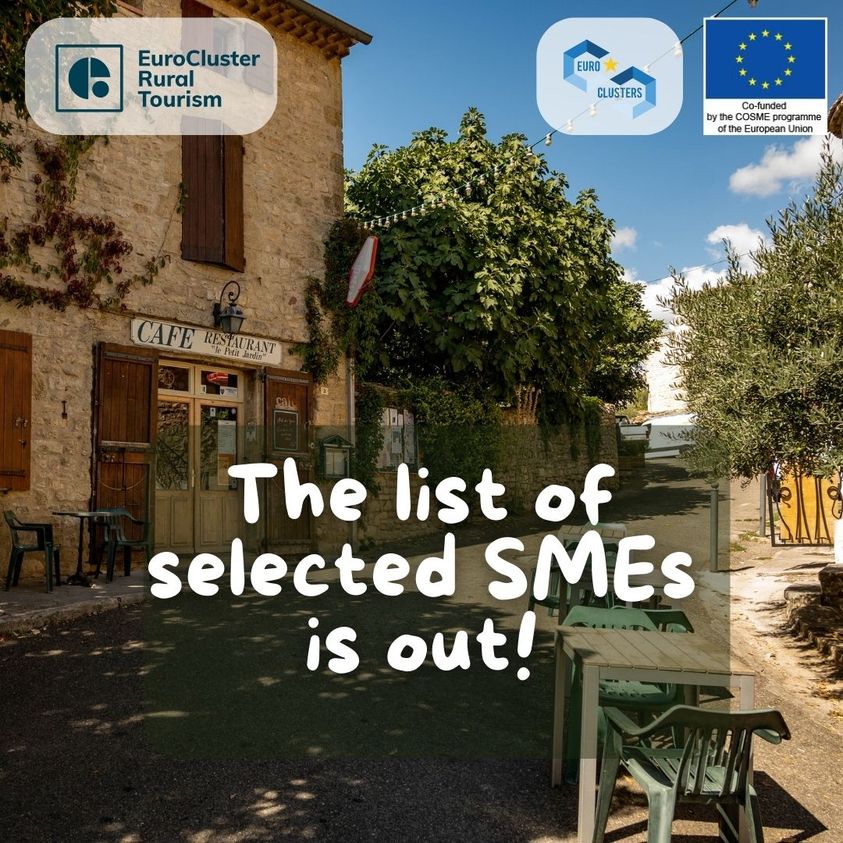
Final list of Selected SME's is published RT Eurocluster
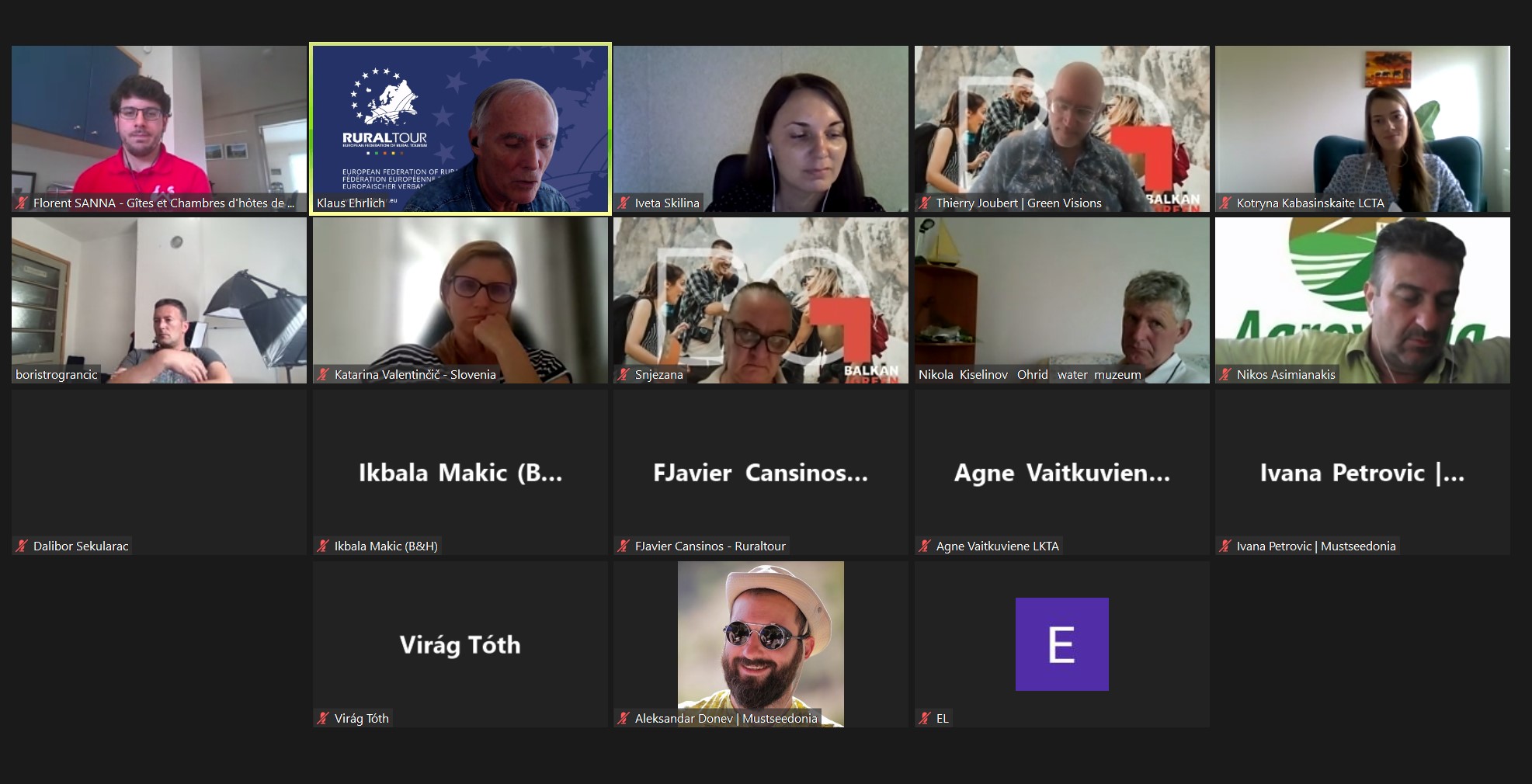
Webinar about the SME call of the EuroCluster Rural Tourism for FSTP
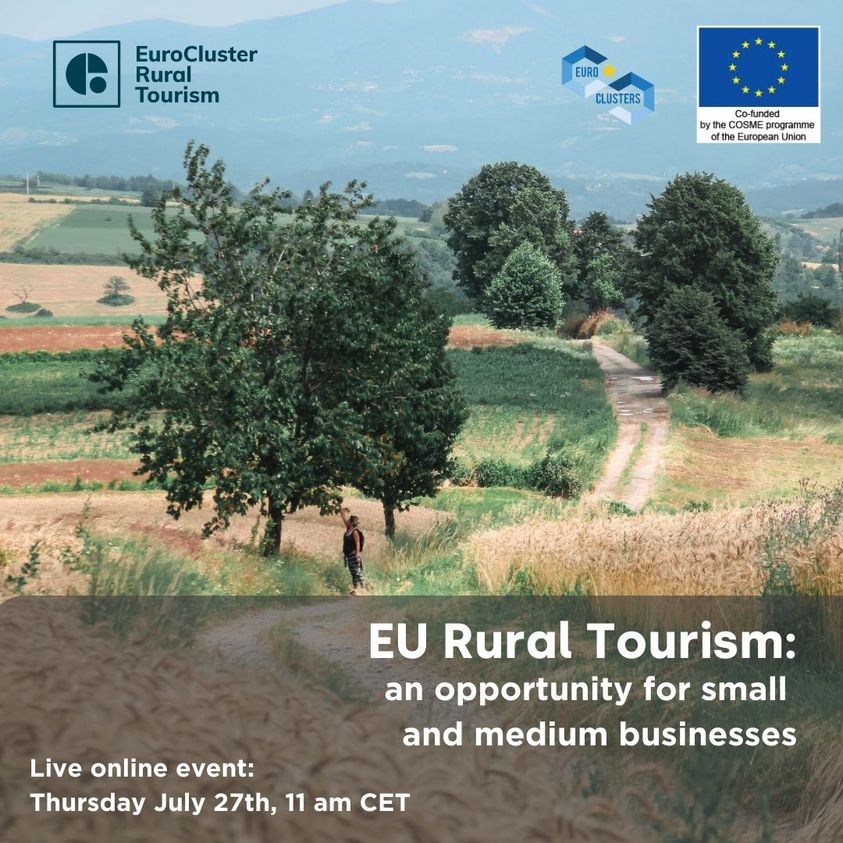
Live Webinar Grants for Rural Tourism SME's
EU RURAL TOURISM: an opportunity for small and medium businesses live event
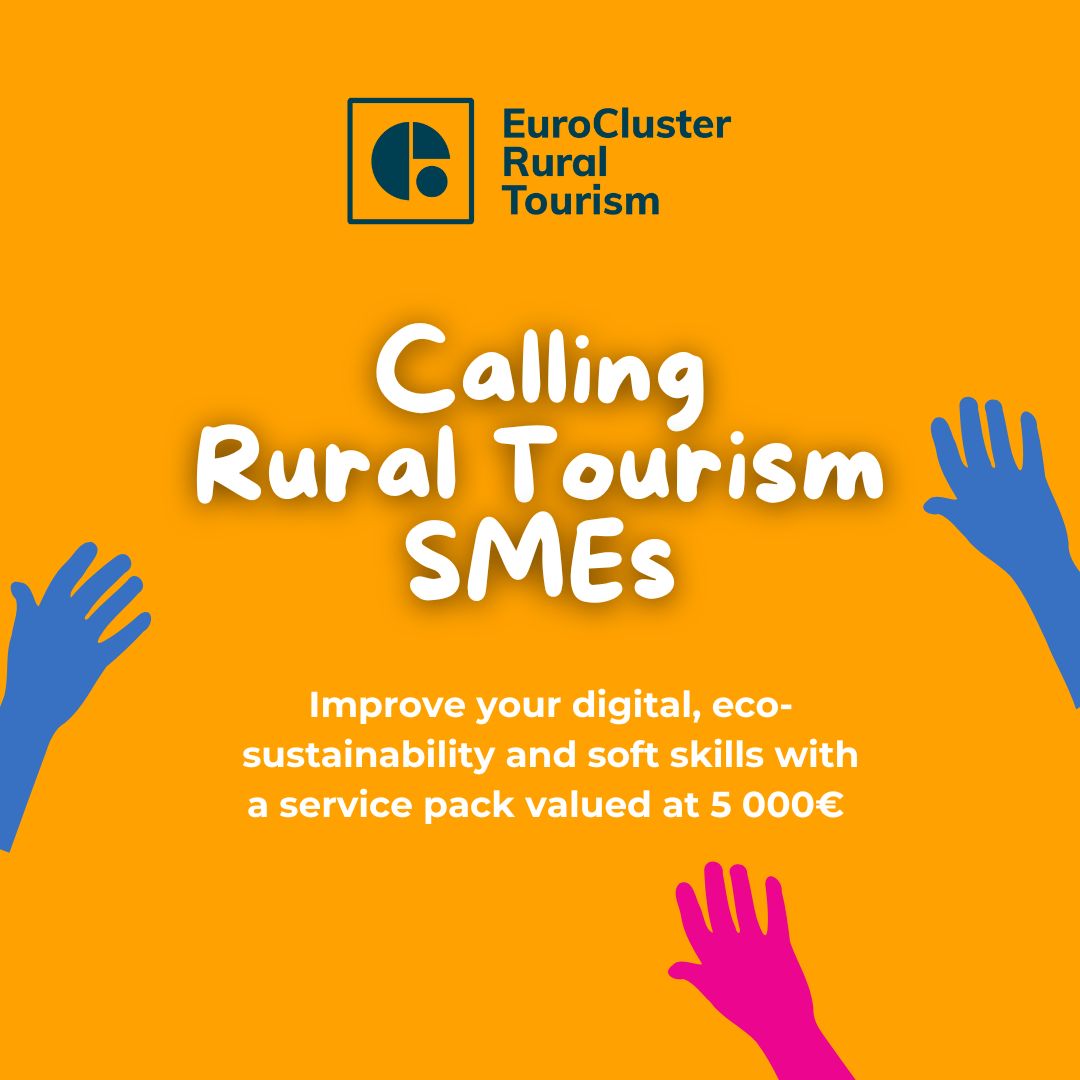
Call for Tourism SMEs GRANTS OPEN NOW!
Call for Tourism SMEs GRANTS - OPEN NOW!
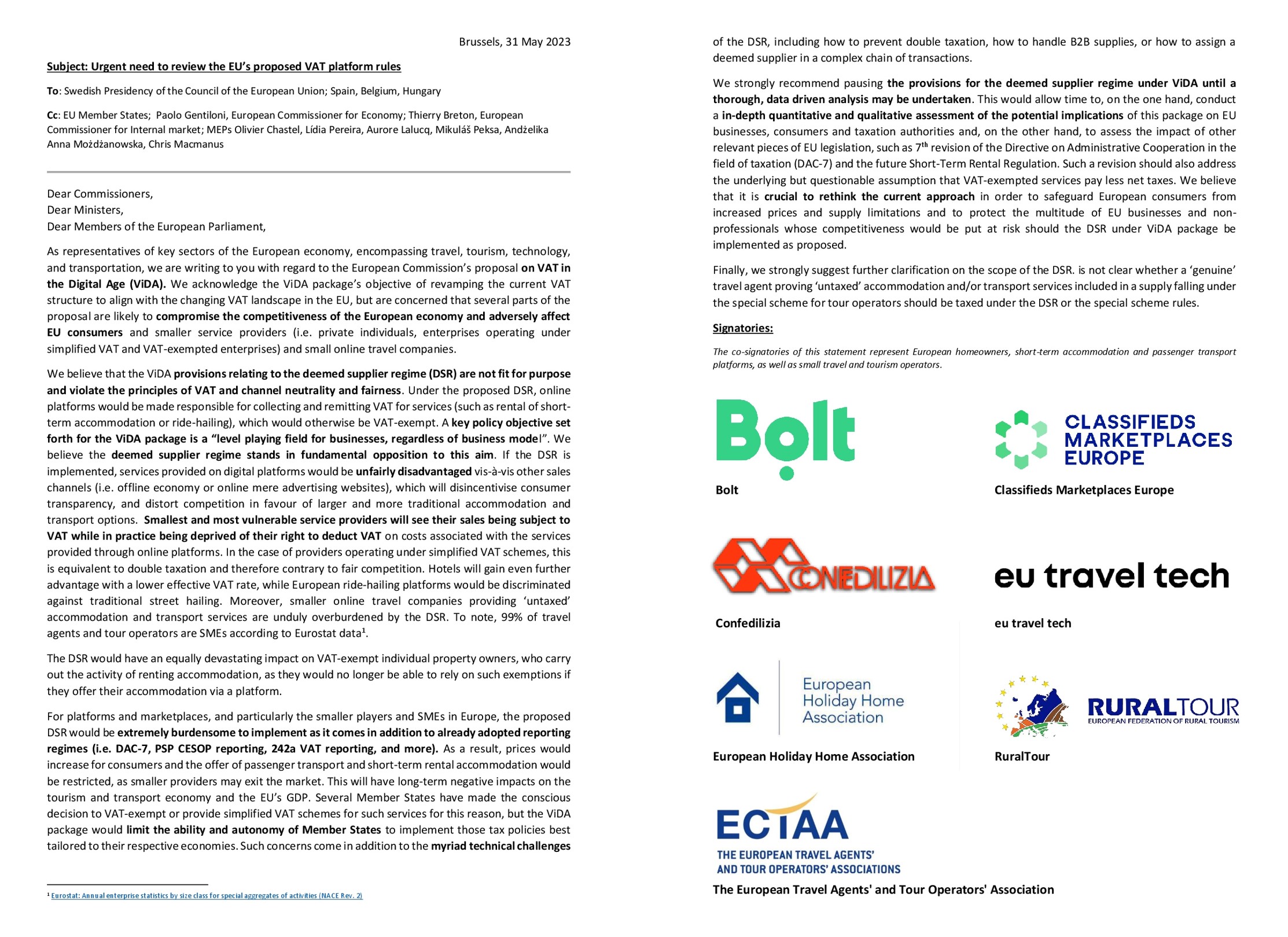
INDUSTRY STATEMENT ON VIDA.
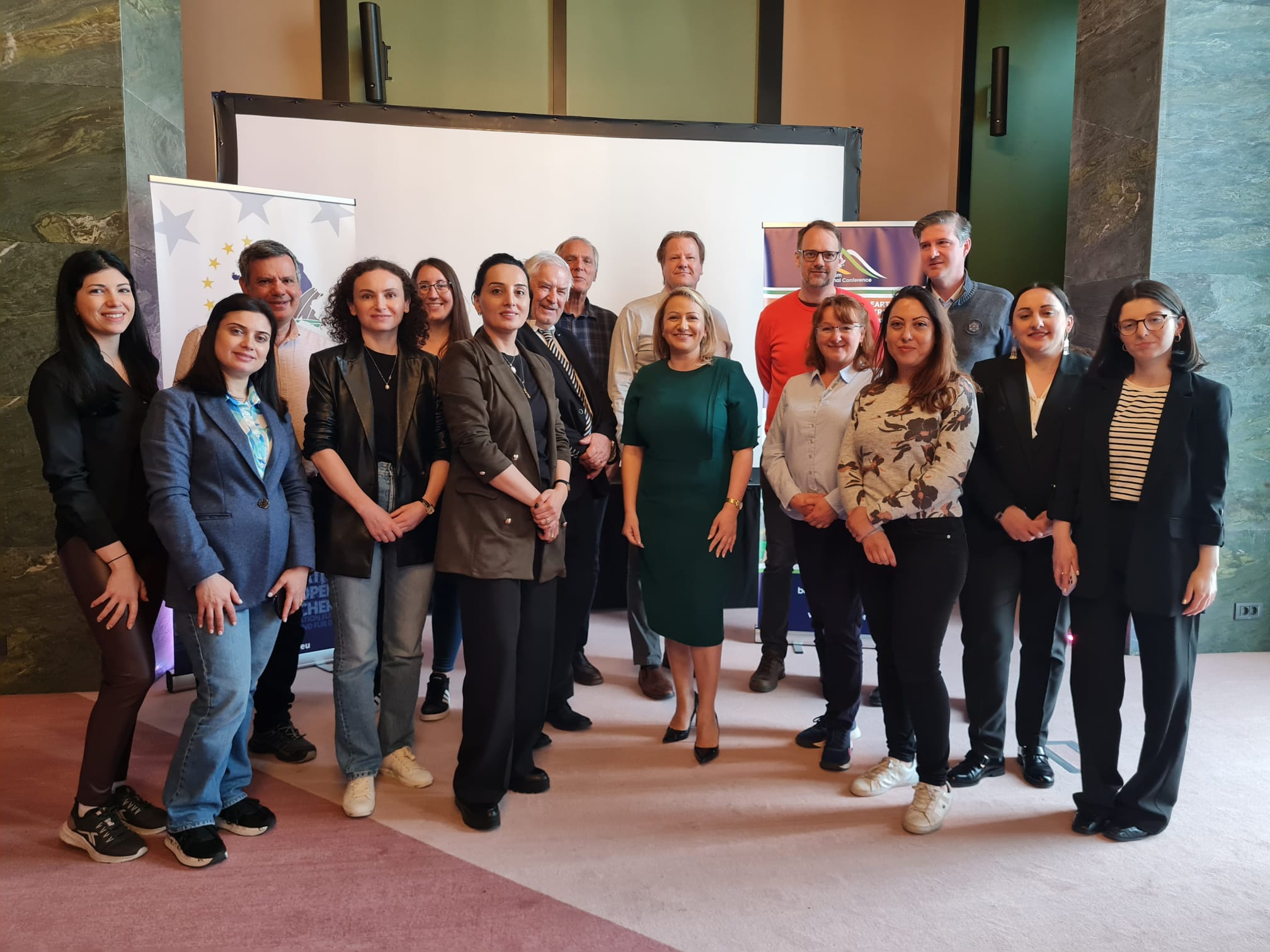
General Assembly of Ruraltour 2023 Georgia
General Assembly of Ruraltour 2023 took place 11th to 13 th May in Batumi Georgia
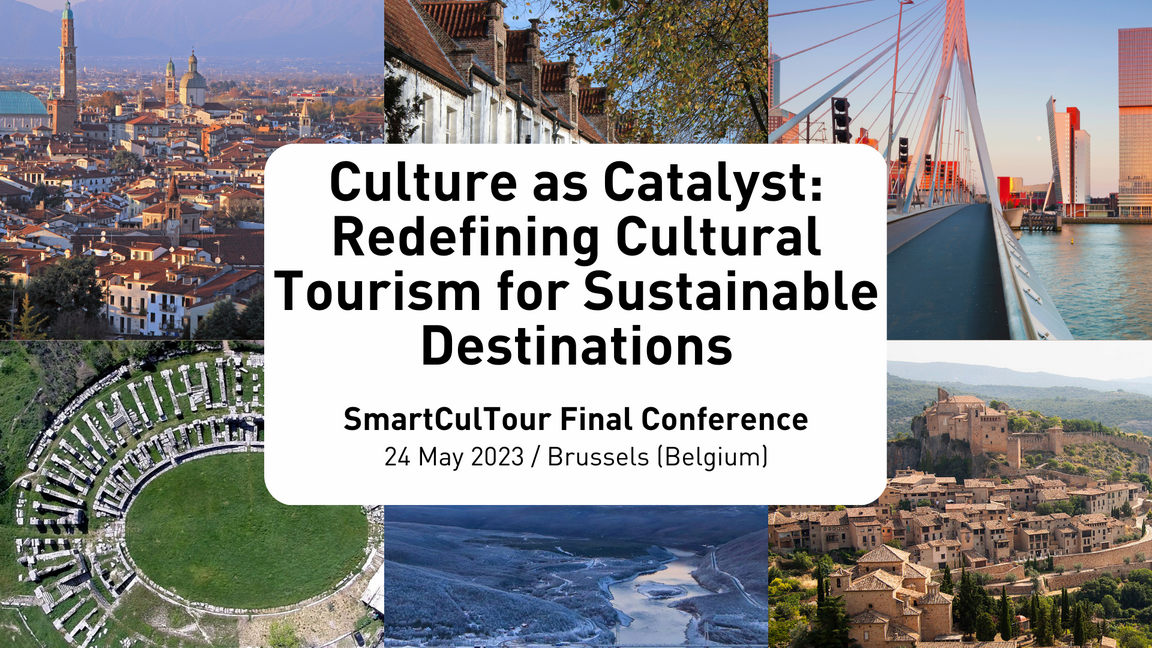
SmartCulTour Final Conference
SmartCulTour Final Conference in Brussels 24 th May 2023

Survey on skills gaps
Survey on skills gaps. PANTOUR PROJECT

Call for Expression of Interest A.S.P.
Announcement of a Call for Expression of Interest - Assistance Service Providers
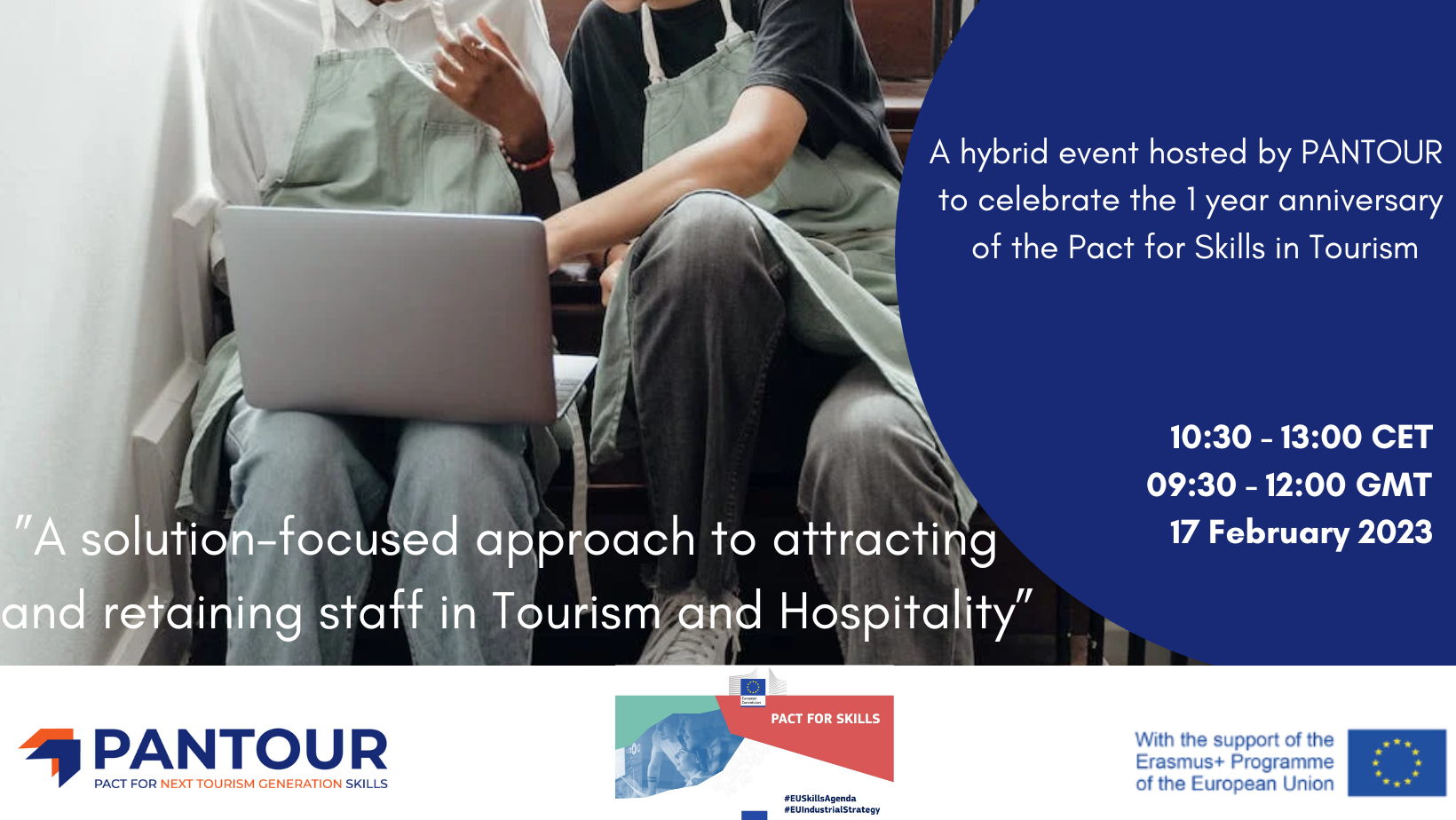
Pact for Skills for Tourism (PfST) Event
Pantour & Pact for Skills for Tourism (PfST) Event

FIRST PANTOUR WEBINAR
JOIN THE FIRST PANTOUR WEBINAR 9th february 2023
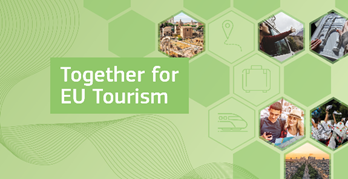
Summary of the actions for PACT FOR SKILLS IN TOURISM 2022
Summary of the actions developed by EU DG GROW within the PACT FOR SKILLS IN TOURISM
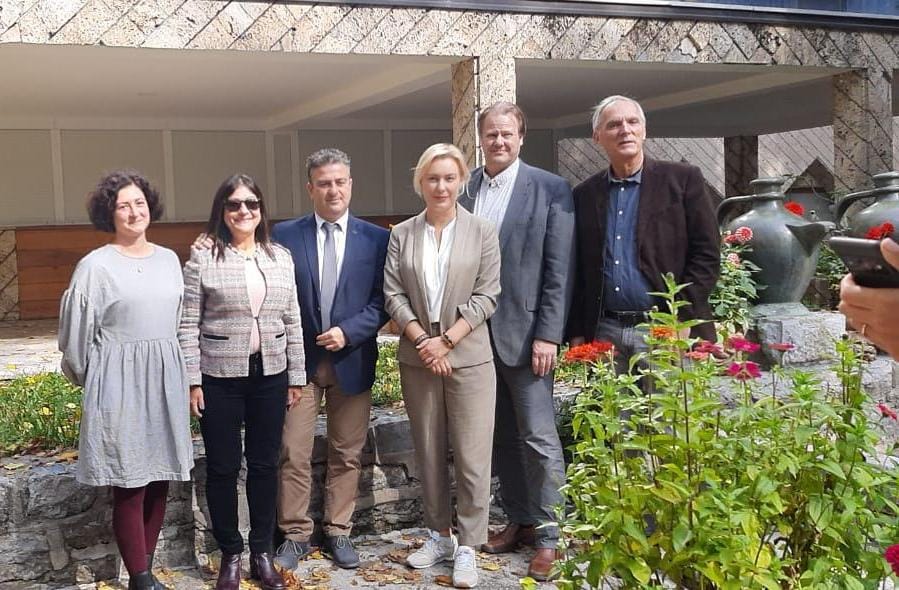
Ruraltour Annual Assembly in Montenegro

Towards Free Movement of Travellers within and into Europe
Towards Free Movement of Travellers within and into Europe. Tourism Manifesto
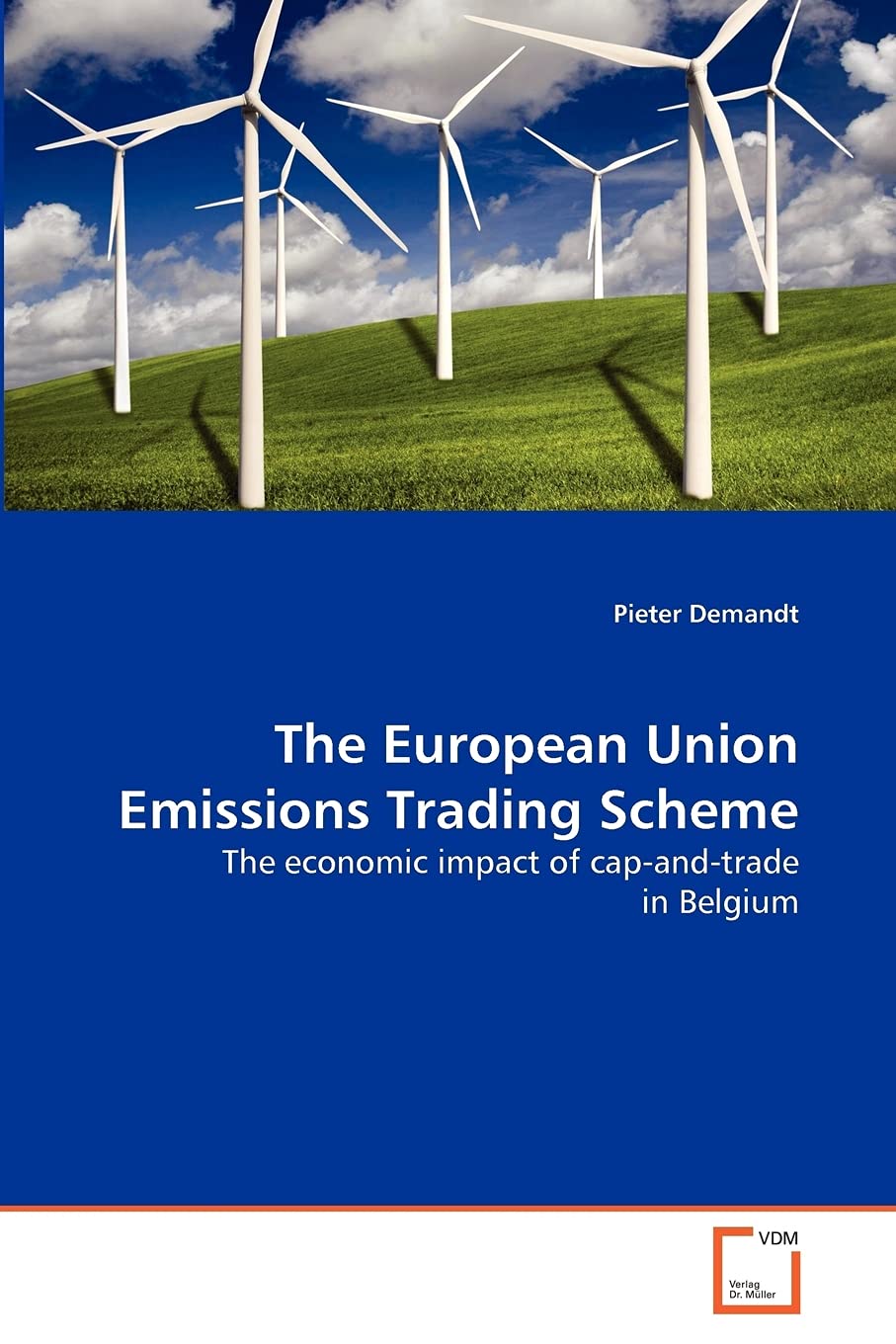
Make the Emission Trading Scheme a fair and fit-for-purpose instrument to all
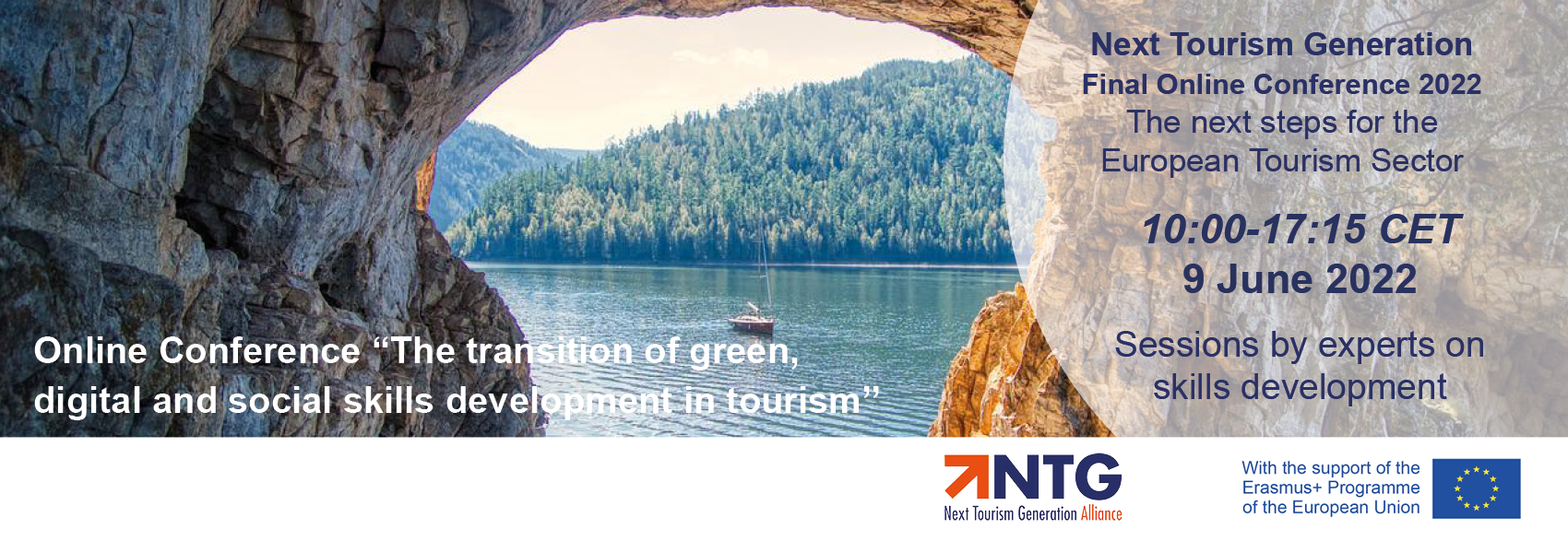
The Next Tourism Generation: The transition of green, digital and social skills development
The Next Tourism Generation: The transition of green, digital and social skills development. Final online Conference
Offers List:
DISCLAIMER. These offers are examples to showcase the variety of options for a holiday in our rural areas. They have purely informative and promotional purpose without any contractual or commercial value. You should contact directly with the provider for a valid individual specification and quote. In case of any conflict from such a direct contact or reservation, neither Ruraltour nor its member organization are liable.

Following forgotten traditions
Enjoy the Hungarian countryside! Béla Sándor Koroknai, the owner of Koroknai Porta, is a huge fan of Hungarian tradition... read more
SPECIAL PRICE
Báránd, Szélmalom u. 1, 4161
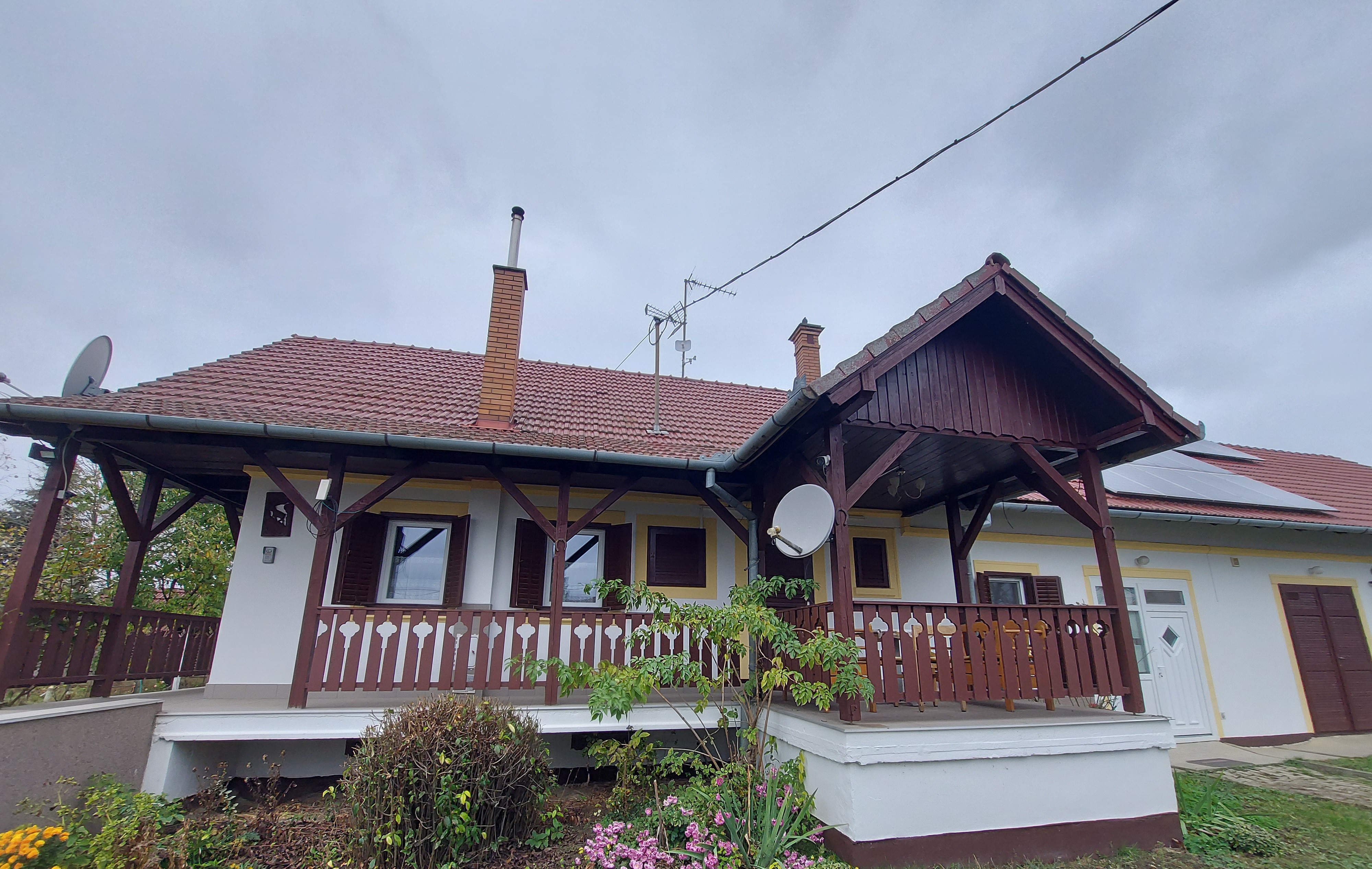
Small-Scale Adventures
Enjoy the Hungarian countryside! Gábor Bényei and his wife are smallholders, the guests can get to know the real farm li... read more
Békés, IX. kerület 3030/40, 5630
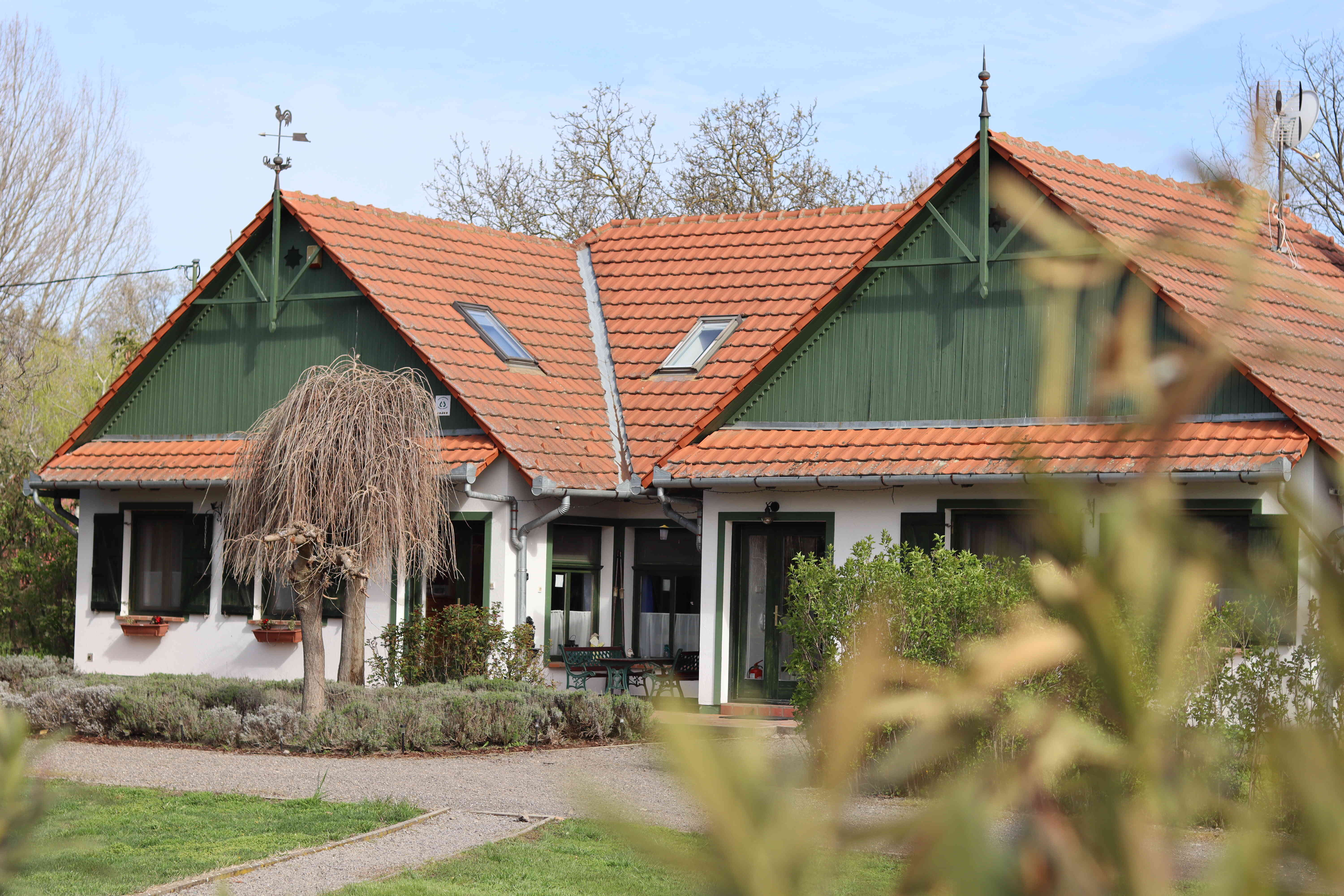
Explore and enjoy the local life in Szarvas
Enjoy the Hungarian countryside! Pál Frankó, the owner of the Frankó Tanya Vendégház, is famous for his local knowled... read more
5540 Szarvas, Mótyói szőlők, 72/2.
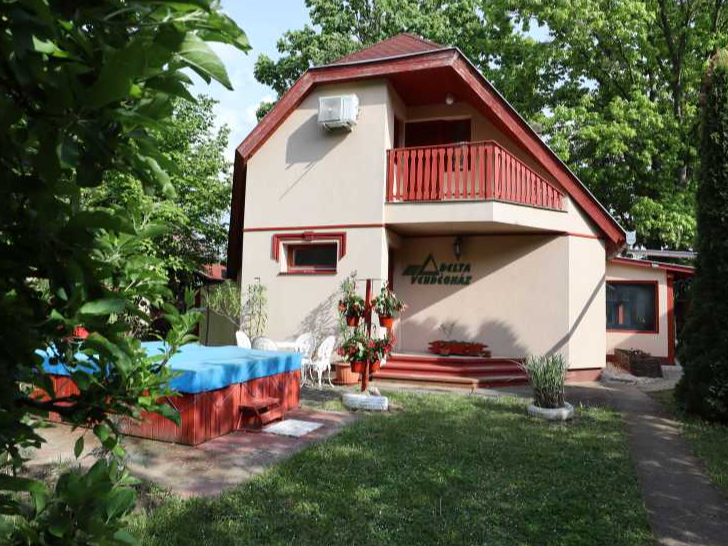
Digital Detox Retreat with gastronomy experiences
Enjoy the Hungarian countryside! Gábor Kovács, the owner of Delta Vendégház, is famous about his cooking talent, he love... read more
5561 Békésszentandrás, Arborétum üdülősor 82.
https://sites.google.com/view/deltavendeghazbekesszentandras/f%C5%91oldal/csomagaj%C3%A1nlat?authuser=0
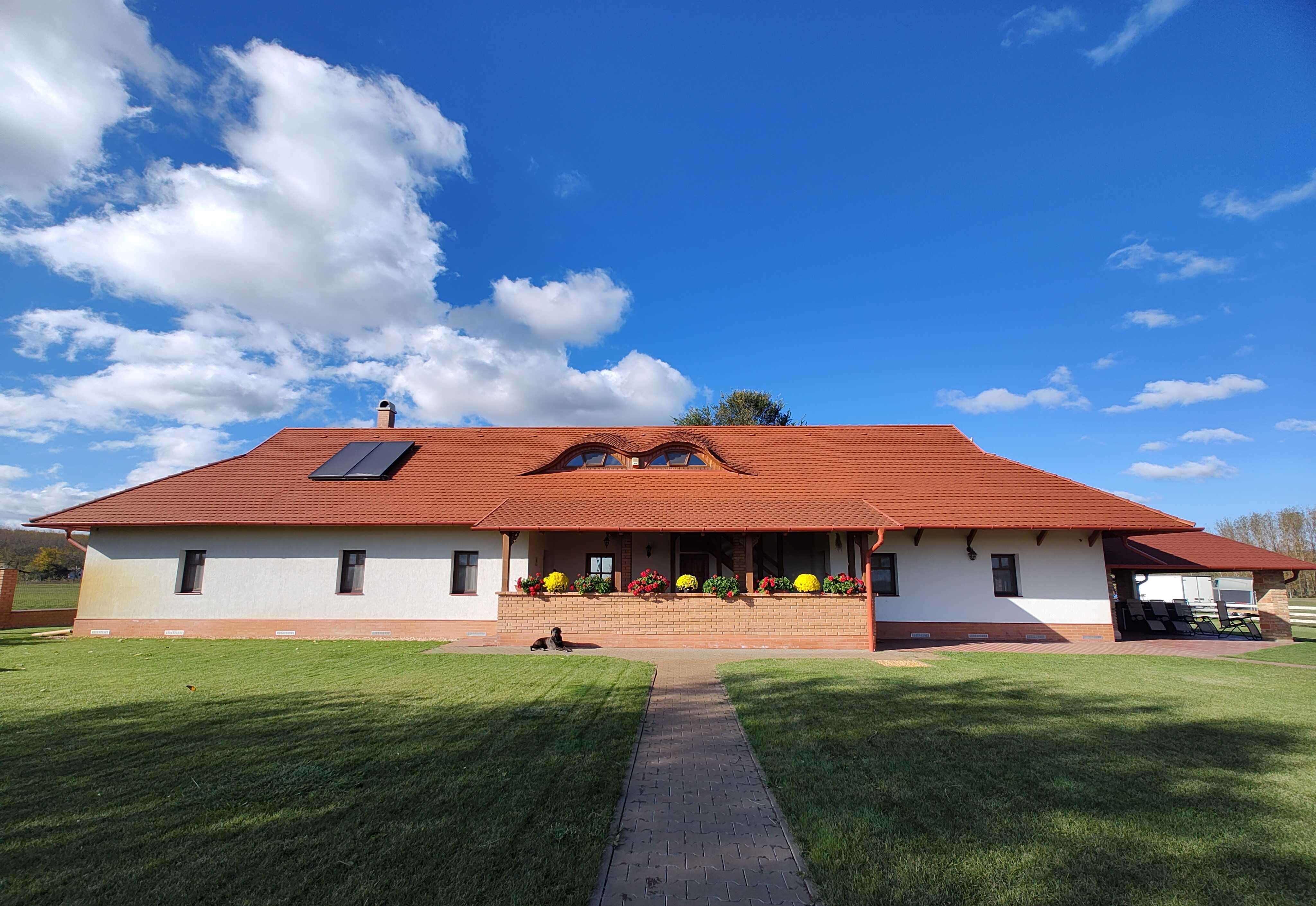
Grapes and horses in Cserkeszőlő
Enjoy the Hungarian countryside! Imre Győri, the owner of Győri Lovastanya in Cserkeszőlő is an active participant in ... read more
Hrsz., tanyaföldek 0208/14., Cserkeszolo, Hungary, 5465
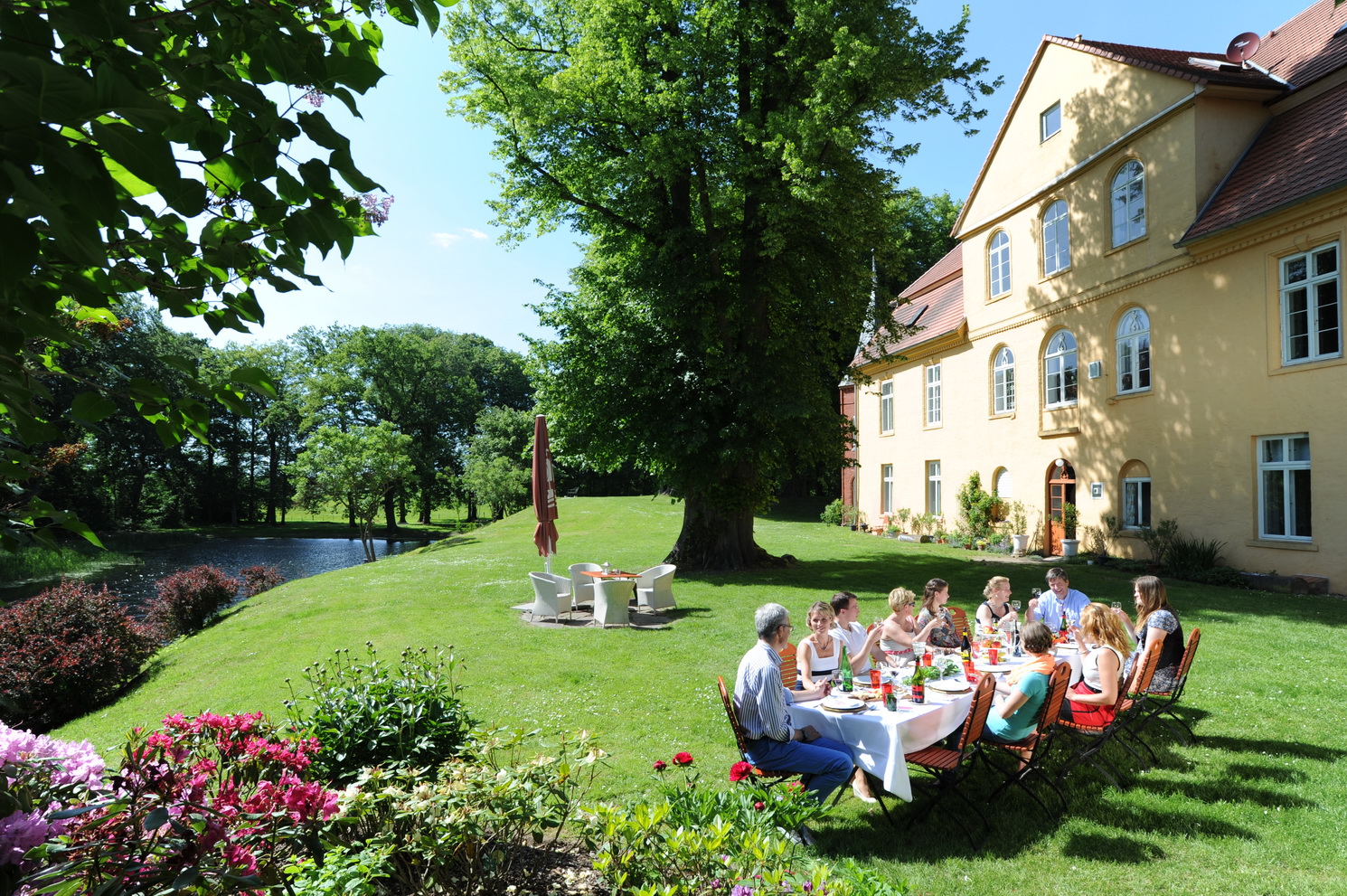

Discover the culinary side of Mecklenburg-West Pomerania
Let yourself (be) led! If you want to discover the culinary side of Mecklenburg-West Pomerania in addition to nature and cul... read more
LANDURLAUB Mecklenburg-Vorpommern e.V. Konrad-Zuse-Straße 2 18057 Rostock
+49 381 4030630.
https://www.off-to-mv.com/regional-cuisine
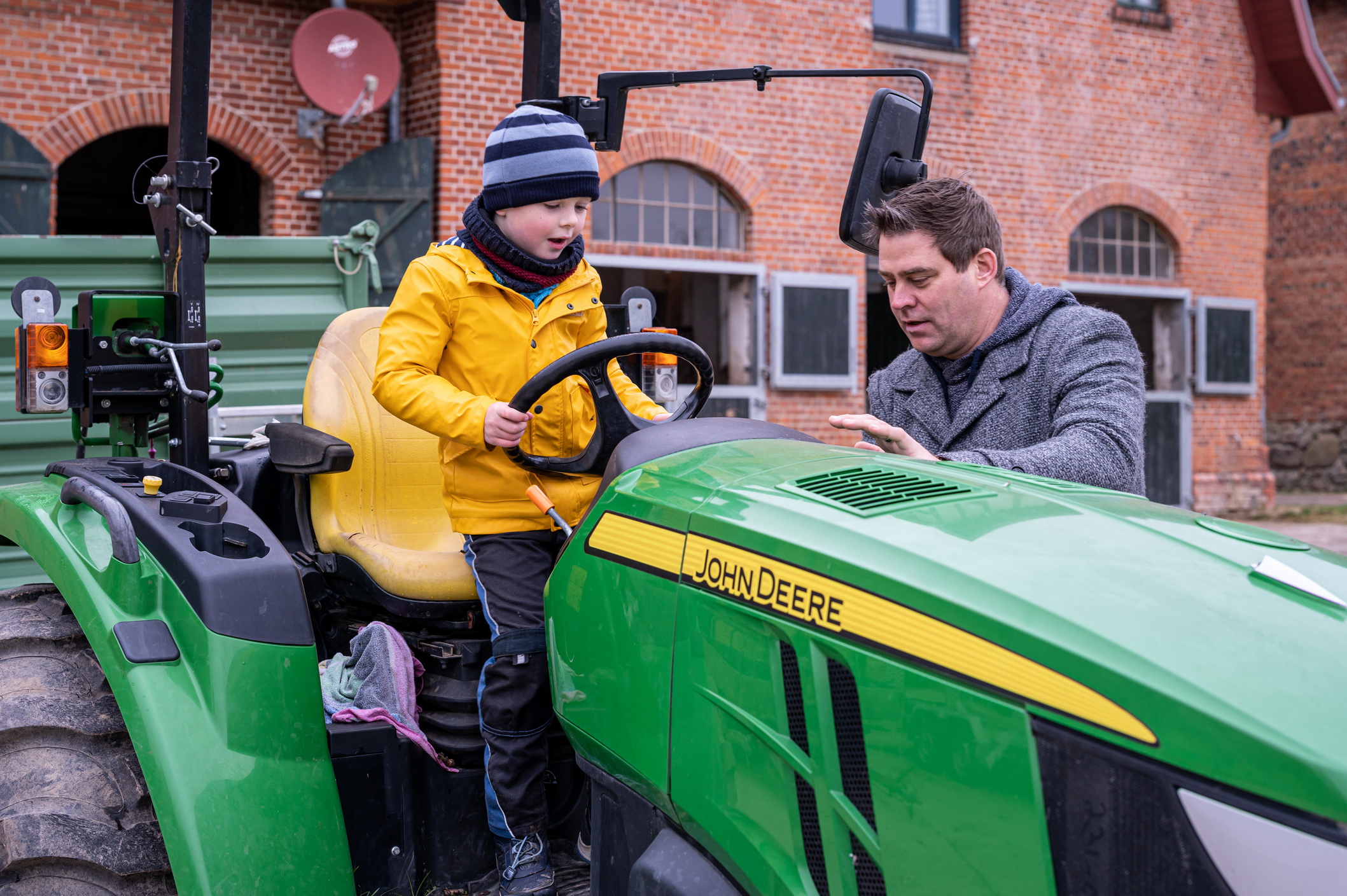
Country adventures for young and old
Country adventures for young and old Discover pure country life in Mecklenburg-Western Pomerania. In many places, farms also... read more
https://www.off-to-mv.com/shore-leave/country-experiences
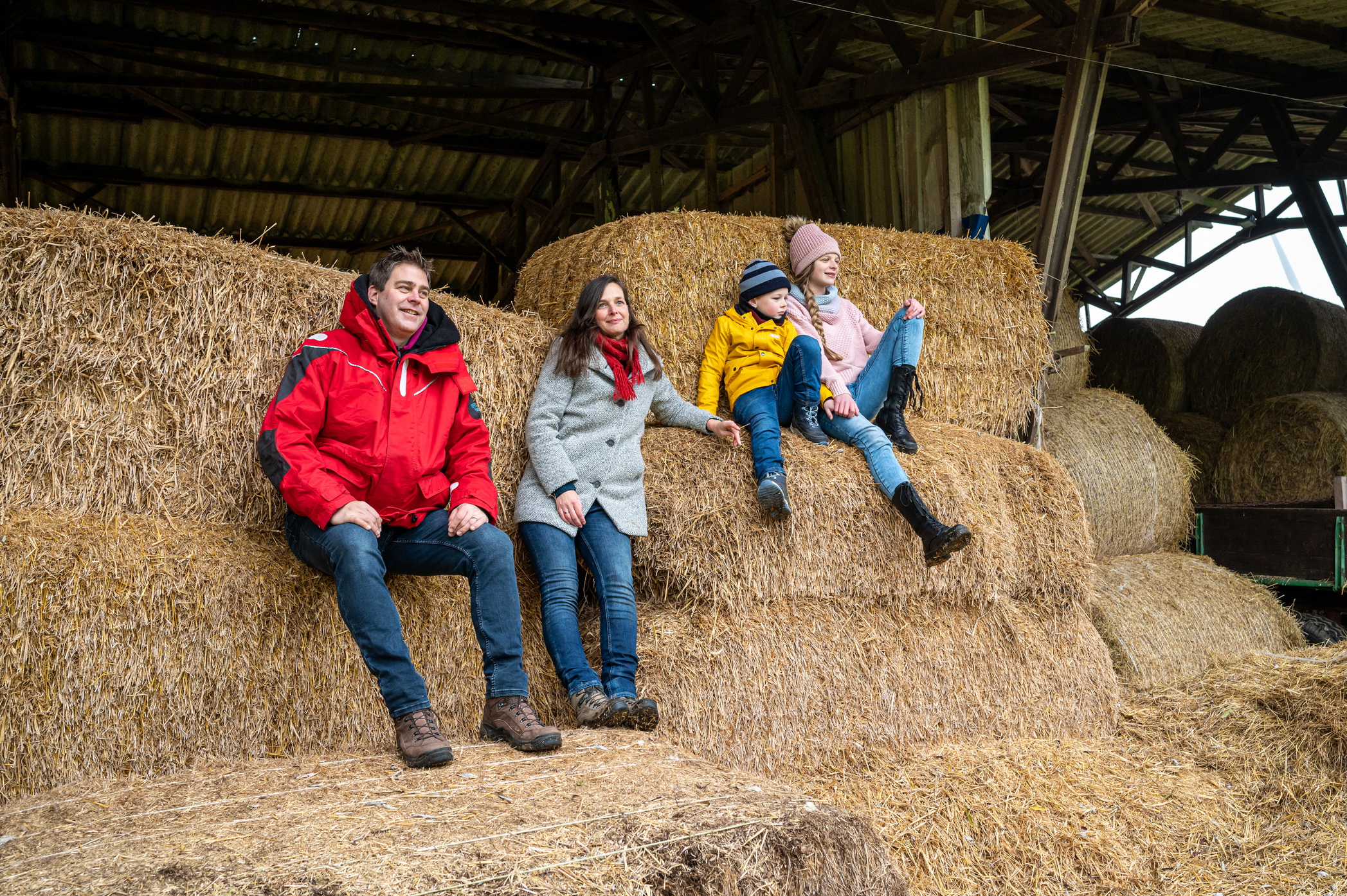
Family holidays in Mecklenburg-Vorpommern
Roaming through the forest and observing animals, experiencing canoe and rafting adventures on winding waterways or going on... read more
https://www.off-to-mv.com/family
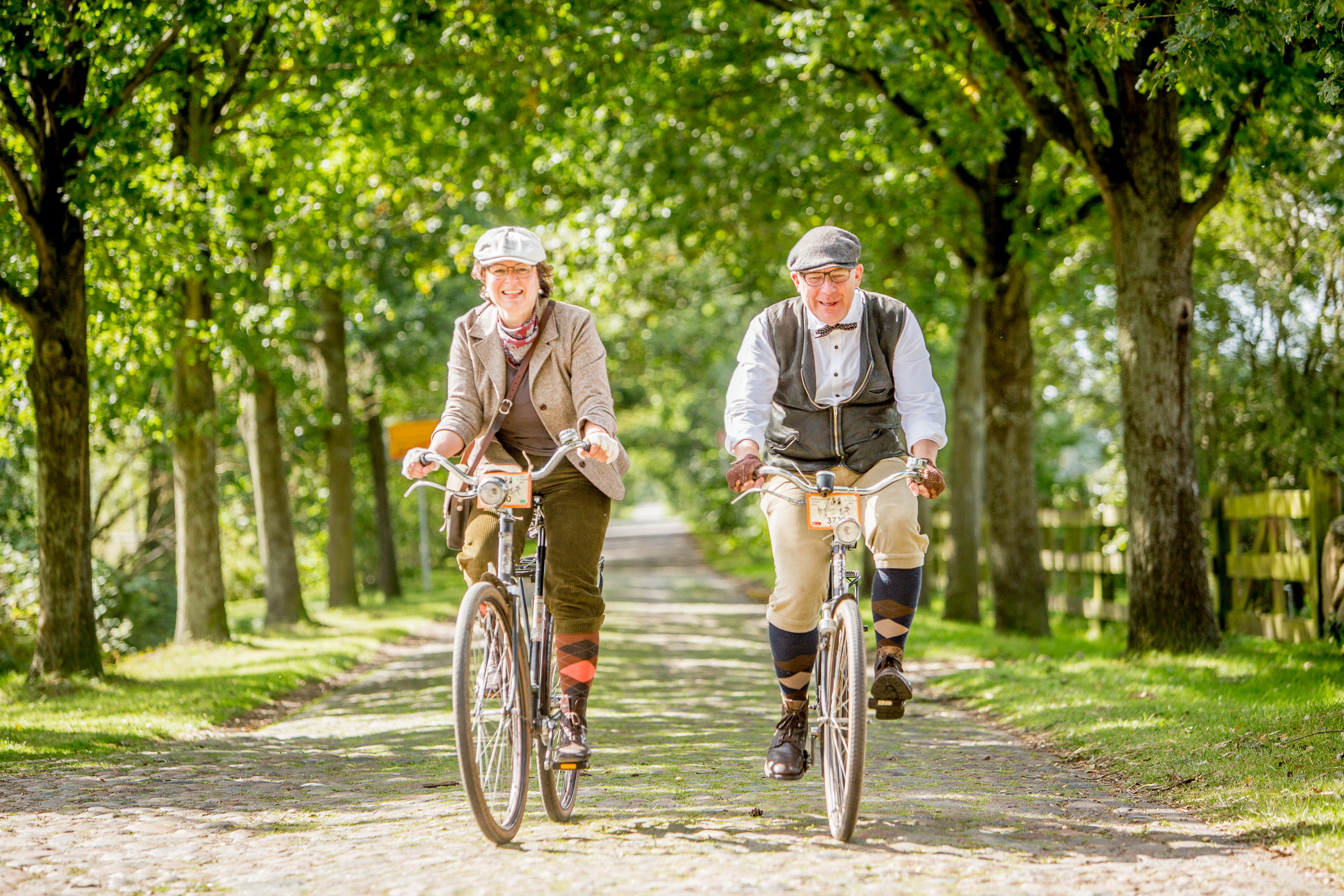
Cycling holiday between the Baltic Sea and the lake district
Discover Mecklenburg-Western Pomerania by bike on long-distance routes and circular tours Whether on one of the islands, thr... read more
https://www.off-to-mv.com/cycling
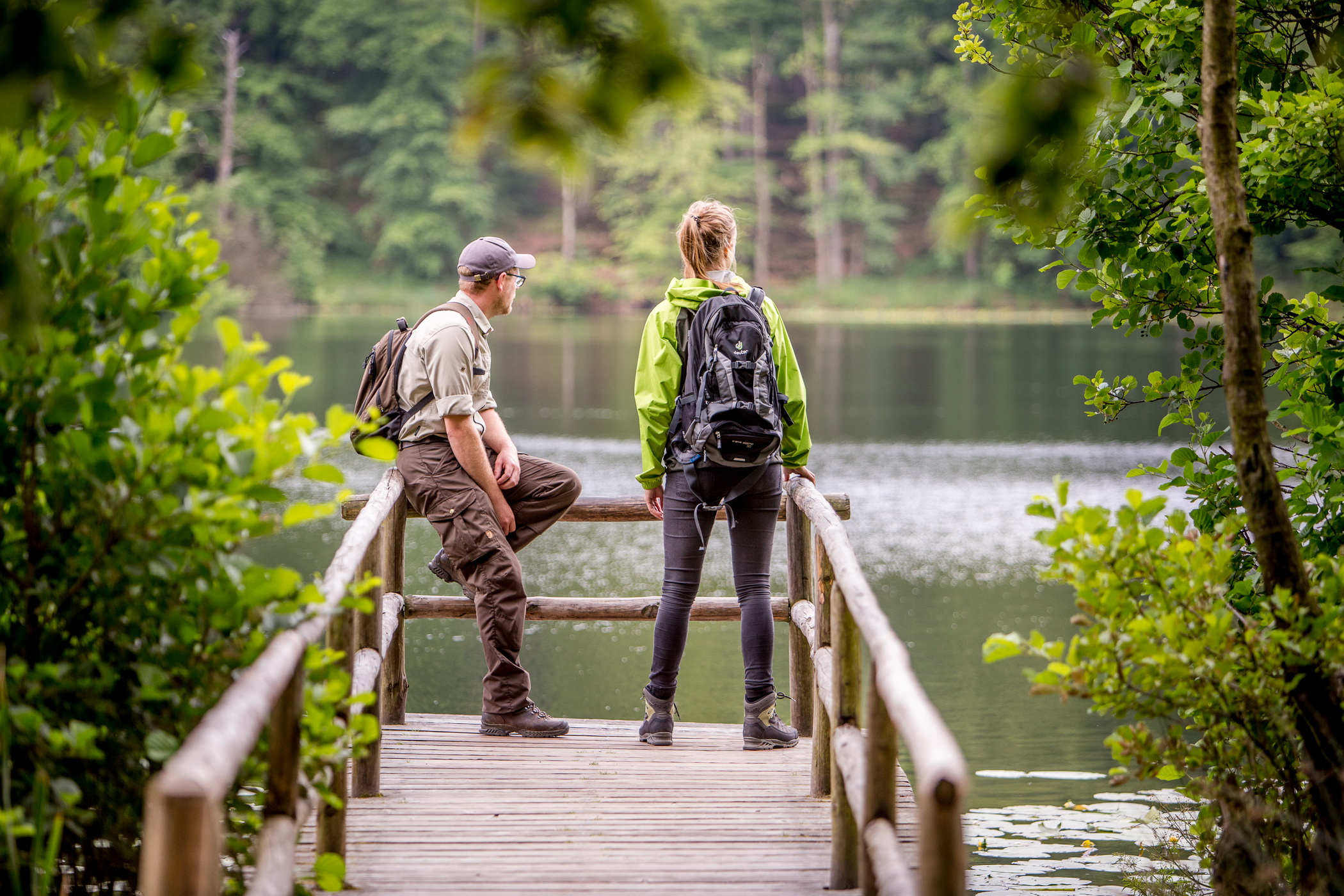
Hiking in MV - every day like a little adventure
Hiking in MV - every day like a little adventure Hiking in Mecklenburg-Western Pomerania is worthwhile at any time of the ye... read more
https://www.off-to-mv.com/hiking
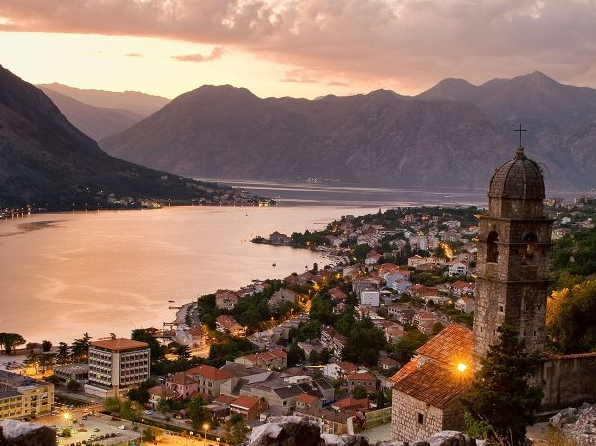
UNESCO cultural heritage of opposite ends of Montenegro
Such a small country, but so many different things to see. From Stećci, Medival Tombstones Graveyards in the North to the o... read more
IV crnogorske 40 84300 Berane
+38268674647.
www.ruralholiday.me
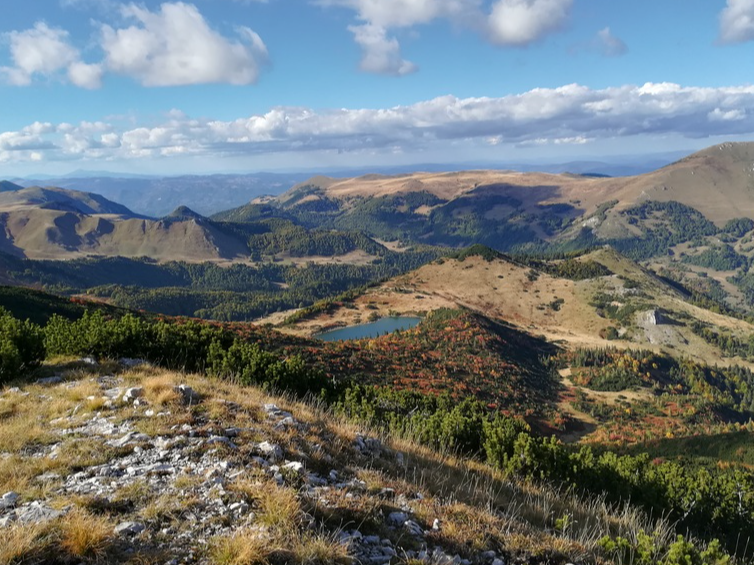
Protected zones
Truly magnificent diverse nature of Montenegro is what makes this small country special. Though there is a lot to be done on... read more
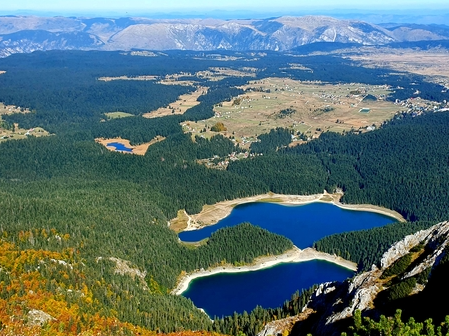
UNESCO natural heritage of Montenegro
Montenegro is the country mostly known for its splendid Adriatic coast. But what really is the main feature of this country ... read more
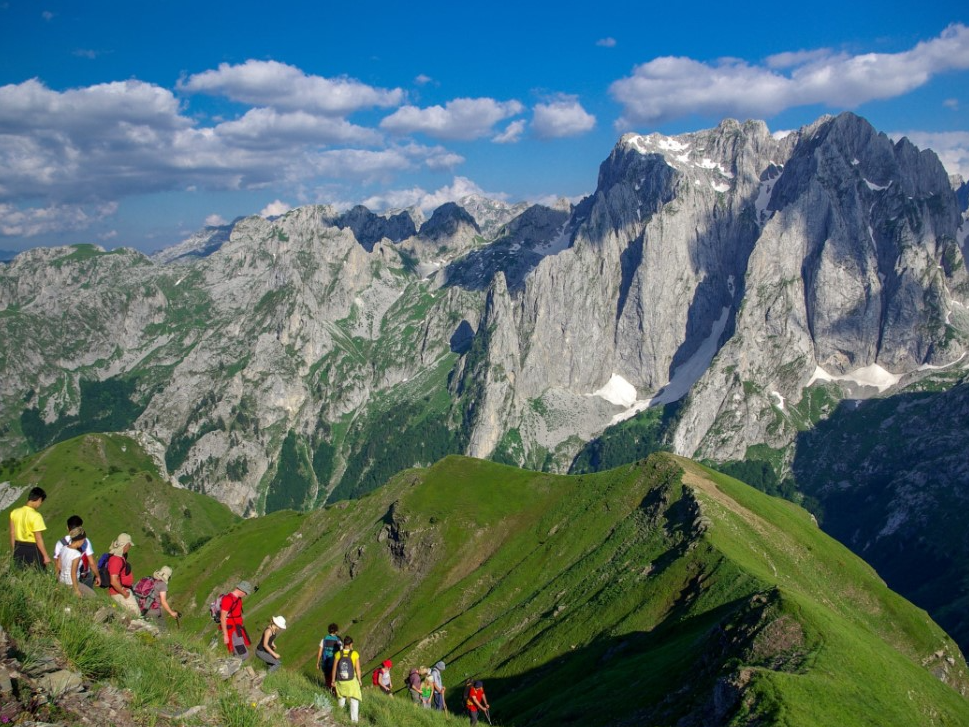
Be blessed in Accursed Mountains - hiking experiences
Don’t be put off by the name of the mountain (Prokletije – Accursed Mountains). According to the legend, the God created... read more
http://accursed-mountains.me/

Biking through endless vistas of Montenegro
Five regional biking trails have been developed to connect the best of what Montenegro has to offer – from attractive and ... read more
www.pedalaj.me
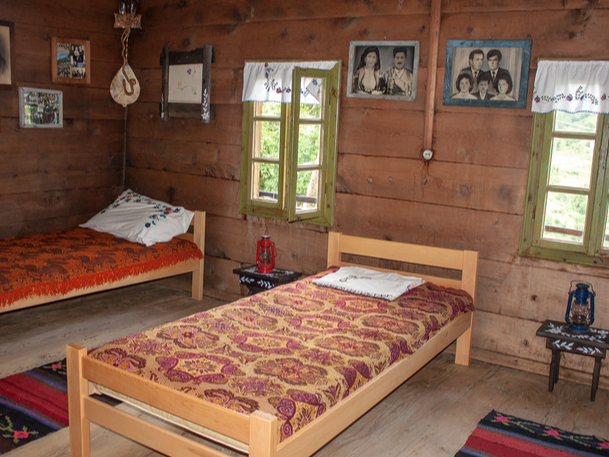
Traditional accommodations
If you would like to stay in convenient, well equipped accommodations, with air-conditioning and mini fridges and plastic wi... read more
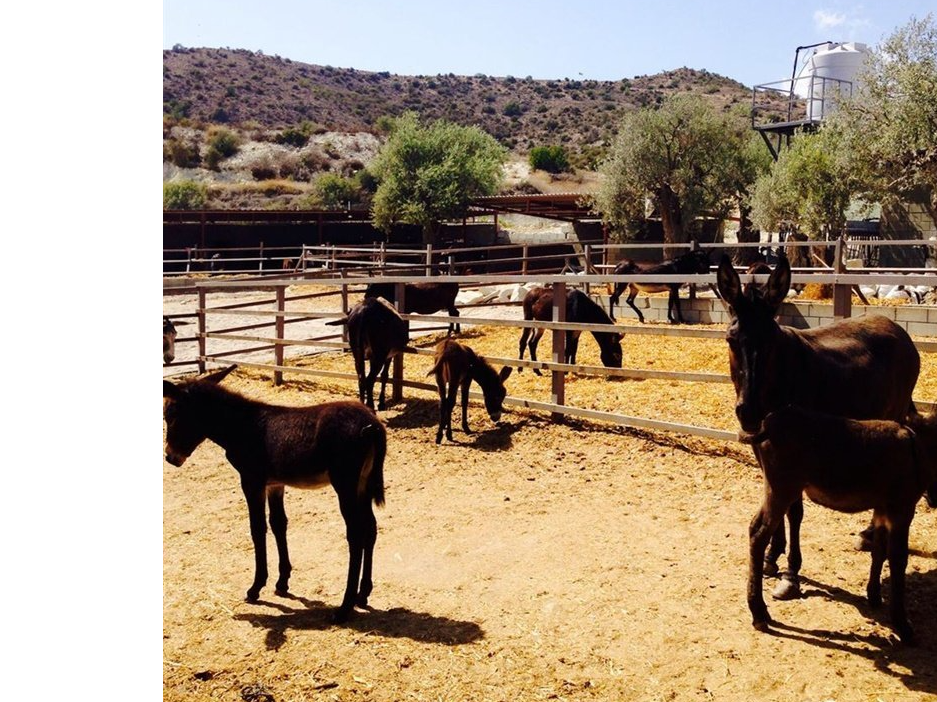
Golden Donkeys Farm
Golden Donkeys Farm is located in Skarinou village, halfway between Larnaca and Limassol. When building it, we were based on... read more
Skarinou 7731, Cyprus
+35799151358.
https://www.agrotourism.com.cy/golden-donkeys-farm
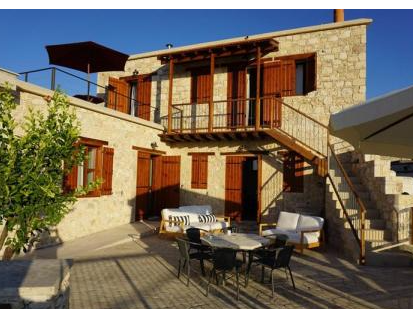
Marmaras - Guest House and Training Centre
The house consists of 3 independent fully equipped studios. The whole unit can accommodate up to 10 persons. Rooms are equip... read more
Ιωσήφ Μιχαήλ 18, Lysos 8800, Cyprus
+35726221216.
https://www.agrotourism.com.cy/property/marmaras
Cookies Consent
This website uses cookies or similar technologies, to enhance your browsing experience. By continuing to use our website, you agree to our Cookies Policy

How to assist SMEs
How to assist and support rural tourism smes, we want to know how rural tourism smes currently receive technical and advisory services and define best practice in the field..
Our project seeks to investigate the content and quality of technical and advisory services currently provided to Rural Tourism SMEs to produce a "Best Practice Guide". Please participate in our survey, and we will send you a copy of the guide when it is produced.
Please contribute to our surveys:
* if you PROVIDE advisory services to rural tourism services, please go here: https://forms.gle/VLRszmrXSKHq4V5y7
* if you are a rural tourism service that RECEIVES such services, please go here: https://forms.gle/m9qv7LsiKUqsXwgh9
Thank you in advance for your cooperation!
Financial support, the 2nd call for tourism smes is closed.
This second call has total funding of 305,000 Euros , and 61 selected SMEs will receive financial support in the form of a service pack valued at 5,000 Euros . The objective is to assist them in designing and developing new tourism products for international markets, incorporating digital, sustainable, and socio-cultural improvements.
See the final list of selected SMEs in the 2nd call.
CLICK HERE and see all details of the 2nd Call!
The 1st Call for Tourism SMEs - CLOSED
This call supported by the COSME Program of the EU aims to help Micro and Nano SMEs that are in the tourism sector and are based in any EU member state or third country participating in the COSME programme and are interested in improving digital, eco-sustainability, and soft/social skills.
The project has total funding of 950,000 Euros, and selected SMEs will receive financial support in the form of a service pack valued at 5,000 Euros. The objective is to assist them in designing and developing new tourism products for international markets, incorporating digital, sustainable, and socio-cultural improvements.
See the final list of selected SMEs.
Click here to have all the information!
Tools and Information
Tools and information for your business.
Our consortium has prepared an online repository of interesting tools and fruitful information that can help to improve your business.
The repository is accessible here .

© 2023-2024 Eurocluster Rural Tourism. Všechna práva vyhrazena.
Official websites use .gov A .gov website belongs to an official government organization in the United States.
Secure .gov websites use HTTPS A lock ( A locked padlock ) or https:// means you’ve safely connected to the .gov website. Share sensitive information only on official, secure websites.
- Search ITA Search
Greece Travel and Tourism Project Funding
In 2021, the European Union launched its Recovery and Resilience (RRF) funding program for Member States. As part of its Greece 2.0 plan, the country will receive over $37 billion in EU funding through loans and grants by 2026 to make critical investments and distribute into priority sectors including green transition, digital transformation, employment skills, private investments and economic transformation. The tourism sector in Greece is a critical market driver, amounting to 13% of its GDP and bringing in revenues of over $25 billion in 2022. The Greek government has earmarked $420 million from its National Recovery and Resilience Facility funds for the tourism sector, with a fous on health & wellness as well as spa tourism, gastronomy and diving tourism, port upgrades, beach accessibility and special training and upskilling programs for tourism sector employees. The projects are centered around four actions:
Action 1 : “Tourism Development” – Budget: $349 million The Tourism Ministry has published notices and invited proposals for the following tourism development projects: – the support of mountain tourism (upgrade of ski centers and mountain refuge facilities). Projects must be completed by July 31, 2025. – the improvement of accessibility to beaches. Projects must be completed by December 31, 2025
– the upgrade of tourist ports. Projects must be completed by December 31, 2025.
The Ministry is expected to release calls for expressions of interest for the four sub-projects, which include:
- The creation of DMMOs (destination management and marketing organizations);
- upgrade of thermal springs facilities (for promotion of health and wellness tourism);
- development of an agrifood/gastronomy tourism network; and
- the upgrade of existing diving/marine parks and financing studies for new ones.
Action 2 : “Tourism Education” – Budget: $49 million Tourism education efforts include the reskilling and upskilling of tourism sector employees. The training programs cover various job positions and address existing and future needs of the industry. The action includes distance learning programs, expected to benefit the country’s 18,000 tourism employees. Calls for expressions of interest are to be announced in Summer/Fall 2024.
Action 3 : “Digital Transformation of the Register of Tourism Businesses” – Budget: $11 million The Greek government has several digitization initiatives to improve services provided to both citizens and tourism enterprises. The action will include: the creation of the MyDigitalTourism digital platform to educate entrepreneurs and travelers; the creation of a subsystem for recording arrivals and departures of visitors to tourist accommodations; and the digitization of the Ministry’s services which will facilitate the submission of documents for licensing tourism businesses and the provision of information about legislation and procedures required for the establishment and operation of a business in the sector. Calls for expressions of interest for Action 3 are to be announced in Summer/Fall 2024.
Action 4 : “Digital Transformation of the Greek National Tourism Organization (GNTO)” – Budget: $11 million The government seeks to develop a Digital Tourist Map that will present the country’s tourism products in detail and an innovative platform for travelers with real-time information, as well as upgrade official website (visitgreece.gr) of the Greek National Tourism Organization (GNTO). Calls for expressions of interest for Action 4 are to be announced in Summer/Fall 2024.
Opportunities for U.S firms:
For more information on these opportunities and to review published expressions of interest, please visit: State Aid Actions of the Ministry of Tourism (mintour.gov.gr) Information on tenders for digital solutions can be here: Notices | Ministry of Digital Governance (mindigital.gr) . Firms interested in entering the market will need to secure a local partner who is familiar with the industry. If you would like more information on identifying potential partners, market conditions and opportunities, please contact the U.S. Commercial Service Travel & Tourism Commercial Specialist Mary Simopoulou at [email protected] .
Cookies on GOV.UK
We use some essential cookies to make this website work.
We’d like to set additional cookies to understand how you use GOV.UK, remember your settings and improve government services.
We also use cookies set by other sites to help us deliver content from their services.
You have accepted additional cookies. You can change your cookie settings at any time.
You have rejected additional cookies. You can change your cookie settings at any time.
- Business and industry
- UK economic growth
Rural England Prosperity Fund: prospectus
- Department for Environment Food & Rural Affairs
Published 3 September 2022
Applies to England

© Crown copyright 2022
This publication is licensed under the terms of the Open Government Licence v3.0 except where otherwise stated. To view this licence, visit nationalarchives.gov.uk/doc/open-government-licence/version/3 or write to the Information Policy Team, The National Archives, Kew, London TW9 4DU, or email: [email protected] .
Where we have identified any third party copyright information you will need to obtain permission from the copyright holders concerned.
This publication is available at https://www.gov.uk/government/publications/rural-england-prosperity-fund-prospectus/rural-england-prosperity-fund-prospectus
Guidance for local authorities for funding under the Rural England Prosperity Fund. The Rural England Prosperity Fund is referred to as the ‘Rural Fund’ in this prospectus.
Important dates
Dates are indicative and may be subject to change.
- 3 September 2022 - Rural Fund launch
- 12 September 2022 - Rural Fund addendum platform launch
- September 2022 - engagement sessions with local authorities and local partners to support the Rural Fund process
- 3 October 2022 to 30 November 2022 - Rural Fund addendum submissions window
- November 2022 to January 2023 - Rural Fund assessment period for government
- January 2023 - anticipated date for approval of Rural Fund proposals
- April 2023 - first payments expected to lead local authorities
- April 2023 to March 2025 - funding period
For more information, contact: [email protected]
1. Introduction
This prospectus builds on, and is complementary to, the UK Shared Prosperity Fund ( UKSPF ) prospectus . It provides guidance for eligible local authorities to get funding under the Rural Fund.
You’ll have submitted a UKSPF investment plan to the UK Government. The Rural Fund is a top-up to the UKSPF and is available to eligible local authorities in England. It succeeds EU funding from LEADER and the Growth Programme which were part of the Rural Development Programme for England.
Integrating the Rural Fund with the UKSPF aligns with the government’s commitment to streamline the funding landscape. We’ll set out a plan for this later this year.
To access funding under the Rural Fund, we’re asking you to provide specific additional information as an addendum to your UKSPF investment plan. Our intention is to make the process as simple as possible. We’ve aligned as much as we can with what you’re already doing for the UKSPF .
1.1 What is the Rural Fund?
Rural areas often face specific challenges including:
- lower productivity rates
- poorer connectivity
- poorer access to key services
The Rural Fund supports the aims of the government’s Levelling Up White Paper and Future Farming Programme. It funds capital projects for small businesses and community infrastructure. This will help to improve productivity and strengthen the rural economy and rural communities.
The Rural Fund is integrated into the UKSPF which supports productivity and prosperity in places that need it most. For eligible local authorities, the Rural Fund is a rural top-up to UKSPF allocations. It supports activities that specifically address the particular challenges rural areas face. It is complementary to funding used to support rural areas under the UKSPF .
The Rural Fund sits alongside existing Defra schemes, including:
- The Farming in Protected Landscapes programme
- The Farming Investment Fund
- The Platinum Jubilee Village Hall Improvement Grant Fund
Read Section 6.1 Who can the Fund support? for the main objectives of these schemes.
Eligible local authorities qualify for an allocation based on factors developed in line with the scheme objectives. This includes the size of their rural populations. Not all authorities with rural areas are eligible. Read Section 3.1 How the indicative allocations were determined .
Funding is available from April 2023 to March 2025.
2. What to use the funding for
2.1 aims of the fund.
The Rural Fund objectives sit within the UKSPF investment priorities for:
- Supporting Local Business
- Community and Place
They also relate to 2 of the Levelling Up White Paper Missions:
- Mission 1 – Living standards
- Mission 9 – Pride in place
The Rural Fund provides capital funding to:
- support new and existing rural businesses to develop new products and facilities that will be of wider benefit to the local economy. This includes farm businesses looking to diversify income streams
- support new and improved community infrastructure, providing essential community services and assets for local people and businesses to benefit the local economy
This funding should not replace funding plans for rural areas under the UKSPF . It is a top-up to help address the extra needs and challenges facing rural areas.
2.2 Projects which may be funded
You must use funding on capital projects. This means you must spend grants on lasting assets such as a building or equipment.
Grants must be for business or community purposes. You cannot use grants to fund domestic property improvements or to buy private vehicles. You cannot spend grants on revenue costs such as running costs or promotional activities.
You may be able to use revenue funding from your UKSPF allocations to support the capital from the Rural Fund top-up. This must be consistent with your UKSPF investment plans.
Projects must be in a rural area. For Rural Fund purposes, rural areas are:
- towns, villages and hamlets with populations below 10,000 and the wider countryside
- market or ‘hub towns’ with populations of up to 30,000 that serve their surrounding rural areas as centres of employment and in providing services
To help you identify the types of projects we expect to see funded, we’ve provided a list of interventions, objectives, outputs and outcomes . Most are the same as UKSPF interventions for:
- Communities and Place
There are 2 extra interventions providing funding for:
- small scale investment in micro and small enterprises in rural areas
- rural circular economy projects
The list of interventions also provides example projects you could fund, such as grants for:
- food processing equipment to scale up from domestic to commercial kitchens (non-farming businesses only)
- converting farm buildings to other business uses
- rural tourism such as investments in visitor accommodation and farm diversification for event venues
Investments should demonstrate value for money and additionality. We’ll provide materials to help support your assessment of projects and to share best practice.
You should also consider how investments contribute to net zero and nature recovery objectives. These include:
- the UK’s commitment to cut greenhouse gas emissions to net zero by 2050
- wider environmental considerations, such as resilience to natural hazards
- the 25 Year Environment Plan commitments
To support green growth, think about how projects can work with the natural environment to achieve objectives. At a minimum, you need to consider the project’s impact on our natural assets and nature.
You should prioritise projects that deliver the greatest economic, environmental and social benefits.
Rural Fund projects can be part of a wider UKSPF intervention. They can provide extra funding where the objectives are the same to add value.
2.3 Case studies: supporting rural businesses
Farm diversification - development of glamping site on farm.
A former LEADER farm diversification project received £15,500 for glamping facilities. This capitalised on the growing demand for tourism in natural locations. It led to extra business for local pubs, restaurants, and rural tourist attractions. It also had positive environmental impacts, showing visitors the local wildlife. The accommodation was low impact, using renewable energy and tents made from natural materials. The new stream of income meant the farm employed seasonal workers, supporting the local economy.
Expanding furniture making business
A former Growth Programme project received funding of £40,000. This funded new machinery to meet increasing demand. The furniture making business increased in-house manufacturing and gained new contracts. This led to the creation of 2-3 full-time equivalent jobs.
2.4 Case study: supporting rural communities
Modernising cricket club.
A former LEADER project provided £11,500 funding to modernise a cricket club’s facilities. It funded new facilities for sporting and social events. The grant also helped to furnish and equip the new hall and buy staging and a bar area for events. This led to more event bookings and employment of a manager and part-time bar and catering staff.
3. Funding places will receive
A total of up to £110 million is available for financial years 2023 to 2024 and 2024 to 2025. Read the Rural England Prosperity Fund: allocations to check your indicative allocation.
Allocations have been determined at local authority level. The indicative allocations show totals for Mayoral Combined Authorities ( MCAs ). In MCA areas, you should use allocations to fund projects in rural areas. You do not need to spend them in each local authority where funding is allocated, although we encourage this.
We’ll confirm allocations after considering the additional information you provide in your addendum to the UKSPF investment plan.
3.1 How the indicative allocations were determined
The Rural England Prosperity Fund: methodology describes how we decided the allocations.
It takes account of:
- rural population
- rural businesses and productivity
- the importance of farming in each authority
Authorities that meet the criteria will get an allocation.
4. How to deliver the Fund
4.1 overview.
You’ll receive funding as part of your UKSPF allocation. You’ll agree and contract projects locally in line with the approved additional information you provide.
We expect you to achieve fund investment and outputs in line with each place’s spend profile.
You must spend all UKSPF contributions, including the Rural Fund, by 31 March 2025. You can use other sources of funding, including your own contributions, after this date to complete schemes.
4.2 Role of local authorities
You’ll deliver projects within the UKSPF framework. You’re responsible for submitting Rural Fund additional information to the UK Government for approval. Read Section 5 Rural Fund process for guidance.
You should consult local rural partners to deliver the Fund. You may wish to use your UKSPF local partnership group. You’re also encouraged to speak to MPs.
Once your additional information is approved and funding allocated, you’re responsible for deciding how to award grants. This will involve:
- managing local project calls for selecting projects in line with approved plans
- approving applications
- contracting with successful applicants
- making payments
- day-to-day monitoring
You should conduct due diligence. Ensure Rural Fund beneficiaries have robust business plans which demonstrate the viability and success of projects.
You’re responsible for ensuring there is no duplication of funding. In particular, there should not be duplication with schemes supporting similar activities. Read Section 6.1 Who can the Fund support? for more detail.
You should have means of monitoring duplication.
Reporting, monitoring and evaluation will be part of the UKSPF .
To comply with World Trade Organisation ( WTO ) reporting obligations, you’ll need to report certain expenditure to us.
Read Section 6.5 Complying with UK law .
4.3 Role of central government
The UK Government implements the UKSPF and the Rural Fund. It will be responsible for assessing and signing off the addendum you submit for funding.
The UK Government will make payments under the Rural Fund to you.
5. Rural Fund process
Our aim is to make the submission process as simple as possible. We’ll use information you’ve already submitted to the UKSPF .
To access the Fund, you must complete a short template. This is an addendum to the UKSPF investment plan. Include additional information outlining how you’ll use the funding and justifying your plans.
The information we’re requesting will build on your UKSPF investment plan. It will show how you’ll spend your rural top-up allocation to support rural businesses and communities.
You should seek opinions from local rural partners and businesses.
5.1 Rural Fund questions
We’ll ask you to set out how you’ll deliver your funding allocation. This should be as complete and accurate as possible at this stage.
In line with UKSPF investment plans, the questions will cover 3 areas.
i) Local context
Include local evidence of challenges, market failures and opportunities. You should link these to the Rural Fund priorities. Challenges may include:
- low productivity in the rural economy
- farms diversifying their business models during the agricultural transition
- deprivation in rural communities
ii) Selection of interventions and outcomes
Identify the interventions and outcomes you want to prioritise. Select each intervention from the menu of subsidy options. You’ll need to justify the interventions selected.
Explain how the interventions selected will address local challenges, market failures and opportunities. You should rank the interventions selected in order of expected value added.
Ensure the proposed intervention demonstrates additionality. Additionality is the extent to which the outcome arising would not have happened in the absence of the intervention selected.
You’ll also need to be sure you could not fund the interventions selected using private finance. This means instead of government funding.
iii) Delivery
This has 2 sections.
a. Expenditure
Detail what you want to deliver with your funding. Include:
- the indicative spend profile for the 2 years of the fund
- how you’ll ensure value for money, including additionality and future private investment that could be unlocked
- why you cannot use private finance
Describe if you’ll collaborate with other places to deliver specific interventions.
We’ll use information on capability and resource from your UKSPF investment plans to assess this.
b. Approach to engagement with rural partners
Describe your consultations with rural partners and your plans for future engagement.
5.2 How to submit your Rural Fund addendum
The Rural Fund platform will launch on 12 September 2022. Your lead UKSPF contact will receive a link to access the platform which has questions to complete.
Submit your addendum using the online platform during the submission window. The submission window opens on 3 October 2022 and closes on 30 November 2022.
5.3 How we will agree your Rural Fund proposals
When assessing your proposals, we’ll consider:
- how well the proposals meet the strategic objectives of the Rural Fund
- how you’ll ensure value for money and additionality, including whether you could fund projects using private finance
- how projects could unlock future private investment
- how you’ve engaged, and plan to engage, with rural partners
We expect your additional information to be coherent and supported by relevant partners. The interventions and outcomes must be deliverable.
If you do not provide enough information, we may ask for more. This includes failure to enter enough rationale in text boxes.
As part of our assessment, we’ll use information in your UKSPF investment plan. This will save you providing it again.
If we cannot sign off the additional information first time, we’ll give you feedback. We’ll work with you to secure sign off.
6. The Fund’s parameters
The Fund will be responsive to local circumstances. It‘ll be flexible on how you design and deliver fund interventions.
You and local partners should consider the Fund’s parameters when deciding on interventions.
6.1 Who can the Fund support?
The Fund operates in rural areas in England.
Any organisation with legal status can get funding to deliver a Rural Fund intervention. This may include:
- local authorities
- public sector organisations
- higher and further education institutions
- private sector companies
- voluntary organisations
- registered charities
- arms-length bodies of government
We cannot support projects that have received funding from other Defra schemes. This includes:
- The Farming in Protected Landscapes Programme - funding for farmers and land managers to work in partnership with National Parks and Areas of Outstanding Natural Beauty bodies to deliver projects on climate, nature, people and place
- The Farming Investment Fund - grants to improve productivity and bring environmental benefits, covering 2 funds - the Farming Equipment and Technology Fund and the Farming Transformation Fund
- The Platinum Jubilee Village Hall Improvement Grant Fund - grant funding over 3 years (to 2025) to support capital improvement projects for village halls, covering extending buildings and modernising facilities. More details on how to apply will be available shortly
We cannot support projects or costs where there is a statutory duty to provide them.
6.2 When can the investment start?
The Rural Fund can support investment in interventions starting from 1 April 2023. Interventions must fit with Fund requirements in this prospectus.
6.3 Maximising other funding sources
Match or co-funding under the Rural Fund is not mandatory. But you should consider match funding and leveraging options from the private, public and third sectors. This will maximise the value for money and impact of the Fund. Consider other funding when designing interventions and agreeing Fund outcomes.
Projects may draw on resource funding from the UKSPF if this is consistent with the UKSPF investment plan and allocation.
We encourage local collaborations and working with other places to deliver Rural Fund interventions.
6.4 Apportioning costs
We expect costs will normally be apportioned on a percentage basis in line with funding contributions, for projects funded by:
- more than one funder
- more than one Rural Fund allocation
Where you apportion costs, the method should be clear and transparent.
6.5 Complying with UK law
Subsidy control.
You’re responsible for complying with subsidy control rules for grant funding. Read UKSPF guidance on subsidy control .
You must follow our guidance on reporting requirements. Read UKSPF guidance on reporting and performance management .
You must follow our guidance on WTO rules and reporting requirements.
Public procurement
You must assess all spend associated with the Rural Fund in advance. This will ensure proposed investment is compliant with Public Contracts Regulations 2015. It must follow local constitution and grant rules, processes and procedures where relevant.
6.6 Branding and publicity
Read Section 7.7 Branding and publicity of the UKSPF prospectus and UKSPF additional guidance on branding and publicity .
7. How we will pay each place or project
The UK Government will make an annual payment to eligible local authorities. This will be at the beginning of each financial year using powers in the UK Internal Markets Act 2020.
We may alter payment cycles where there are performance or delivery issues. We reserve the right to withhold or delay payment.
We’ll ask you to return any underspends at the end of each financial year.
8. How we will measure performance
Read Section 9 How we will measure performance of the UKSPF prospectus and the UKSPF additional guidance on reporting and performance management .
The Rural Fund is part of the UKSPF reporting so you’ll only have one reporting obligation.
8.1 Rural Fund indicators
See the list of interventions, objectives, outputs and outcomes for the Fund indicators. Use these as a guide when deciding your Rural Fund interventions.
You must use the common indicators shown for each intervention to measure outputs, outcomes and impacts.
9. Next steps
Using this prospectus, work with your local partnership group to develop your proposals. Submit your Rural Fund addendum during the submission window.
The indicative important dates for the Fund are provided at the start of this prospectus.
Is this page useful?
- Yes this page is useful
- No this page is not useful
Help us improve GOV.UK
Don’t include personal or financial information like your National Insurance number or credit card details.
To help us improve GOV.UK, we’d like to know more about your visit today. We’ll send you a link to a feedback form. It will take only 2 minutes to fill in. Don’t worry we won’t send you spam or share your email address with anyone.

This copy is for your personal, non-commercial use only. To order presentation-ready copies for distribution to your colleagues, clients or customers visit http://www.djreprints.com.
https://www.barrons.com/news/housing-crunch-a-factor-in-greek-eu-vote-5301fa3d
- FROM AFP NEWS
Housing Crunch A Factor In Greek EU Vote
- Order Reprints
- Print Article
In the run-up to the European parliament elections in June, many Greeks are focussed on what for them is the big issue: finding a home.
Soaring rents, record-breaking numbers of tourists and a surge in foreign investment in property all mean that getting affordable housing here is an uphill task.
And thousands of people face the same challenge.
Kyriaki Tsouti and Dionyssis Giakoumelos are among those caught in the housing labyrinth.
Tsouti, 32, is unemployed. Her partner, Giakoumelos, also 32, clears 750 euros ($804) each month.
They want to start a family, but 60 percent of their income goes towards housing expenses.
And even in the semi-rural town of Koropi east of Athens, an 80-square-metre (860-square-foot) flat costs more than 500 euros a month, Tsouti told AFP.
"It's a considerable increase for our tight budget," she said.
It is a problem for increasing numbers of people in this country of 10.4 million.
Incomes slashed during the 2009-2018 debt crisis, have still not recovered.
In terms of household income, Greece ranks in 21st place among the 27 EU member states even after an increase in the minimum wage to 830 euros, according to EU data agency Eurostat.
According to a Bank of Greece report in November, Greeks spent 34.2 percent of household income on housing in 2022 compared to an EU average of 19.9 percent.
"With 1,000 euros per month and a rent of 550 euros excluding charges, what is left to live on?" said Nikoletta Diga a 36-year-old civil servant.
She was one of those who joined a recent demonstration in Athens calling for affordable rents. "I was forced to scramble to find a room-mate," she said.
Between 2009 and 2022 salaries fell by 32 percent, according to figures from the Organisation for Economic Co-operation and Development (OECD). Greece has the lowest wages among developed economies, says the OECD.
That -- and the cuts to pensions during the debt crisis -- dealt a major blow to the purchasing power of Greeks. It currently stands at just 67 percent of the European average, according to a Eurostat study published in March.
Only Bulgaria does worse.
Policies adopted after the Covid-19 pandemic to promote tourism made matters worse by pushing property prices out of the reach of ordinary people, said Thomas Maloutas, a professor of social geography at Athens' Harokopio University.
In certain parts of Athens, entire buildings have been purchased by Chinese, Turkish, Russian or Middle Eastern investors.
This is thanks to a "golden visa" scheme also employed by fellow EU states Cyprus, Portugal and Spain.
Introduced during the Greek debt crisis to boost the economy, it grants foreign nationals a residence permit in return for investing several hundred thousand euros in real estate.
And as with other popular European travel destination, this has particularly hit the short-term rental sector, said Maloutas.
"The market is overvalued," Maloutas said.
"Over-tourism and the golden visa have attracted foreign investors and stimulated demand while Greek incomes are stagnating," he added.
"Owners prefer to rent or sell their apartments in Athens at a high price and settle in the outskirts."
In the face of growing discontent, the government has tightened its golden visa rules, increasing the minimum investment required from 250,000 to 800,000 euros, and setting limits on short-term rentals.
But the gentrification of certain central Athens neighbourhoods where a new metro line is under construction has already forced out some owners and migrant tenants from old apartments, say real estate experts.
Dimos Dimakopoulos, a 31-year-old engineer, said he was searching for an apartment for him, his wife and son. But he said: "Rents have almost doubled since 2022, rising to more than 650 euros now."
The housing crisis was casting a wide net, said Maloutas. It "affects students, young professionals, elderly people and refugees".
Georgia Stratigakou, 73, bought an 80-square-metre apartment in Athens with a mortgage in the 1980s.
Now she fears she will lose it.
"With my meagre pension, it's difficult to pay taxes and bills" which continue to increase, she said.
An error has occurred, please try again later.
This article has been sent to
- Cryptocurrencies
- Stock Picks
- Barron's Live
- Barron's Stock Screen
- Personal Finance
- Advisor Directory
Memberships
- Subscribe to Barron's
- Saved Articles
- Newsletters
- Video Center
Customer Service
- Customer Center
- The Wall Street Journal
- MarketWatch
- Investor's Business Daily
- Mansion Global
- Financial News London
For Business
- Corporate Subscriptions
For Education
- Investing in Education
For Advertisers
- Press & Media Inquiries
- Advertising
- Subscriber Benefits
- Manage Notifications
- Manage Alerts
About Barron's
- Live Events
Copyright ©2024 Dow Jones & Company, Inc. All Rights Reserved
This copy is for your personal, non-commercial use only. Distribution and use of this material are governed by our Subscriber Agreement and by copyright law. For non-personal use or to order multiple copies, please contact Dow Jones Reprints at 1-800-843-0008 or visit www.djreprints.com.

COMMENTS
Guide on EU funding for tourism. This online guide highlights the wide range of funding programmes financed by the new budget, multiannual financial framework 2021-2027, and Next Generation EU. With these resources and this guide, we're supporting the move towards a more digital, sustainable and inclusive EU.
This guide focuses on practical issues related to the most important EU funding programmes for the tourism sector. Find out about your eligibility, which activities are eligible, the different types of funding, and where to apply & when. ... Sustainable Tools & Activities for Rural tourism and ecotourism SME's Growth (SMP-COSME-2021-TOURSME ...
go far beyond what rural development policy can achieve, but what EU funding currently ... maximise the potential of rural tourism in a healthy and diverse natural and agricultural landscape and embrace rural areas' creativity and cultural potential; COR-2020-01066-00-01-PAC-TRA (EN) 4/10 5. Highlights that the current pandemic crisis has ...
See all the information presented during our 1st transnational webinar - EU RURAL TOURISM: an opportunity for small and medium businesses. 03.08.2023. If you couldn't attend the session: EU RURAL TOURISM: an opportunity for small and medium businesses - live event, here you can find all the information provided and the recording of the session.
How to use EU funding for sustainable tourism 1 Abstract 2022 is a key year for activities accelerating the transition to sustainable tourism. This year, different EU funding schemes for regional development and economic recovery after the pandemic start to become available. This includes EU funding for:
open call for tourism SMEs Action acronym: EU Rural Tourism Action grant agreement number: 101074557 Action full name: Eurocluster Rural Tourism Open call Publication Date: 07/07/2023 Open call Deadline Date: 10/09/2023 65 days after publication on Funding & Tender Portal Total EU funding available: 950.000 Euros (190x5.000)
Is Tourism, - be it cultural, rural, sustainable, or all of the above - on your region's list of priorities?If the answer is yes, then this brief article may be the starting point for a great journey, destination EU projects funding opportunities!. The online guide recently published by DG Grow (Internal Market, Industry, Entrepreneurship and SMEs) highlights the wide range of funding ...
The EuroCluster Rural Tourism is looking for Micro- and Nano SMEs that are in the tourism sector and are based in any EU member state or third country participating in the COSME programme and are interested in improving digital, eco-sustainability, and soft/social skills. This second call has total funding of 305,000 Euros, and 61 selected SMEs ...
The EuroCluster Rural Tourism project has a total funding of 950,000 € to support SMEs in this field and based in one of the EU countries or third country participating in the COSME project. The selected SMEs will receive financial support in the form of a service pack valued at 5,000 Euros
EUROPEAN FEDERATION OF RURAL TOURISM. The European Federation of Rural Tourism - RURALTOUR is a professional tourism trade organisation representing this sector at European level. It is formed by 28 national and regional provider organisations from 25 countries of geographical Europe, plus 4 affiliated members in 4 countries of Central Asia.
The main lever for the development and promotion of rural tourism in Greece has been, and continues to be, through specific EU programmes. Rural tourism in Greece began with a long delay compared to other European countries. The development philosophy was (and still is) to increase rural incomes as a complement to agricultural and livestock production, not by degrading them. This theoretical ...
The 2nd Call for Tourism SMEs is CLOSED!. This second call has total funding of 305,000 Euros, and 61 selected SMEs will receive financial support in the form of a service pack valued at 5,000 Euros.The objective is to assist them in designing and developing new tourism products for international markets, incorporating digital, sustainable, and socio-cultural improvements.
In 2021, the European Union launched its Recovery and Resilience (RRF) funding program for Member States. As part of its Greece 2.0 plan, the country will receive over $37 billion in EU funding through loans and grants by 2026 to make critical investments and distribute into priority sectors including green transition, digital transformation, employment skills, private investments and economic ...
April 2023 to March 2025 - funding period. For more information, contact: [email protected]. 1. Introduction. This prospectus builds on, and is complementary to, the UK ...
And even in the semi-rural town of Koropi east of Athens, an 80-square-metre (860-square-foot) flat costs more than 500 euros a month, Tsouti told AFP. ... Greece ranks in 21st place among the 27 ...